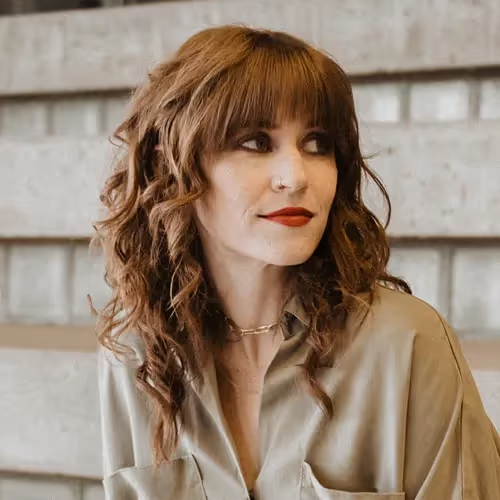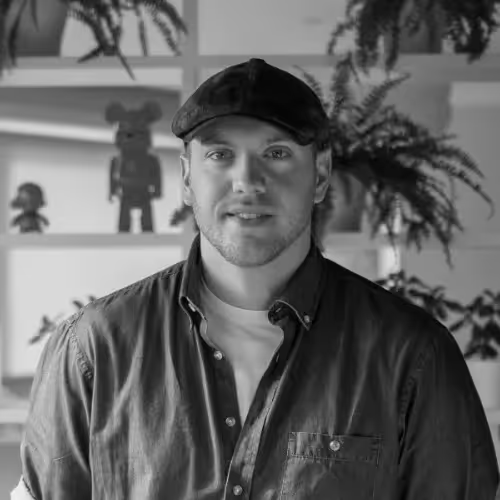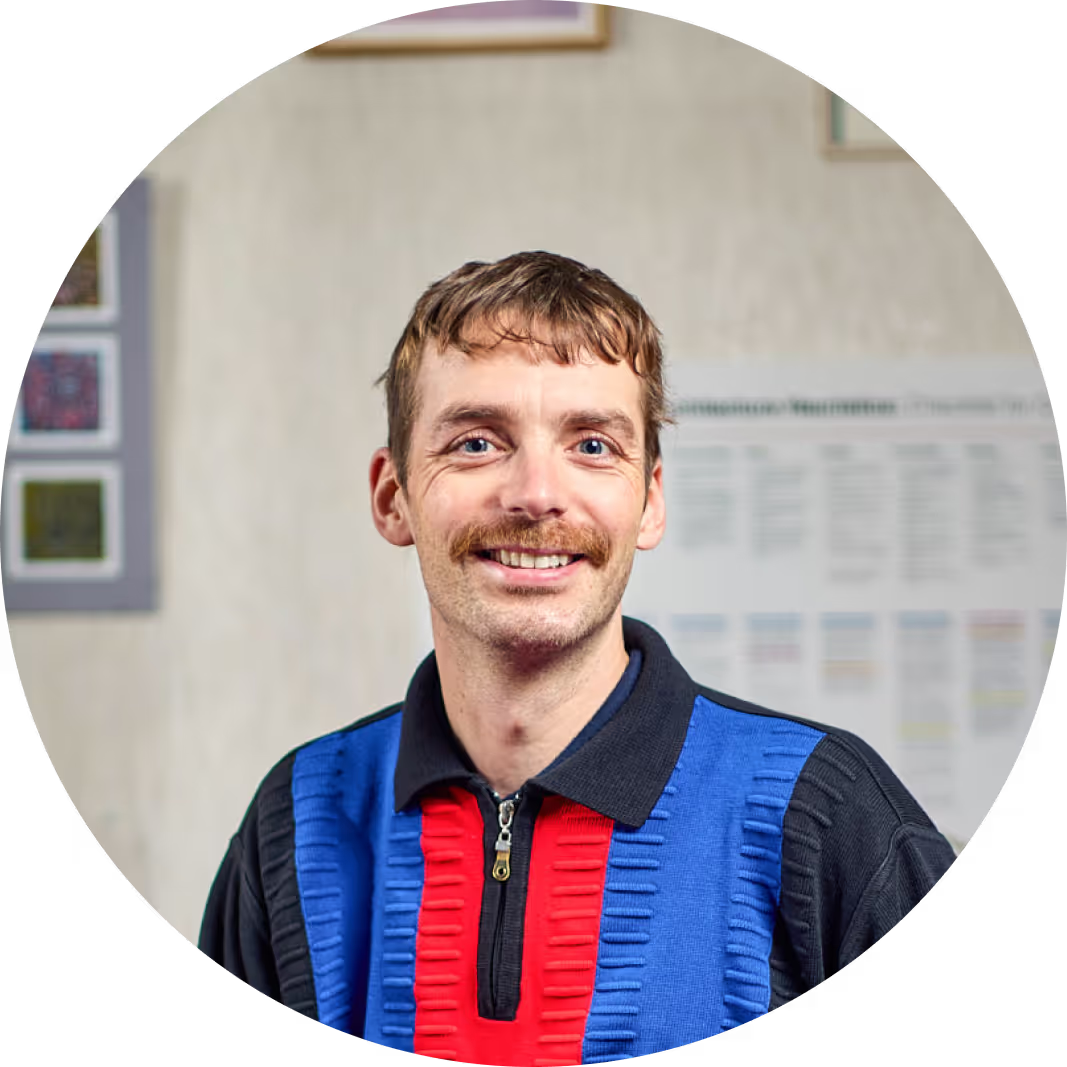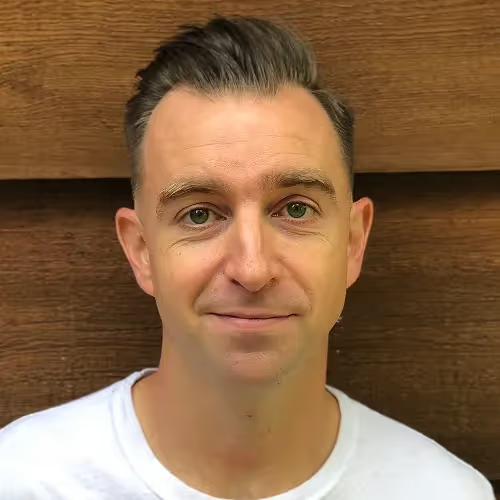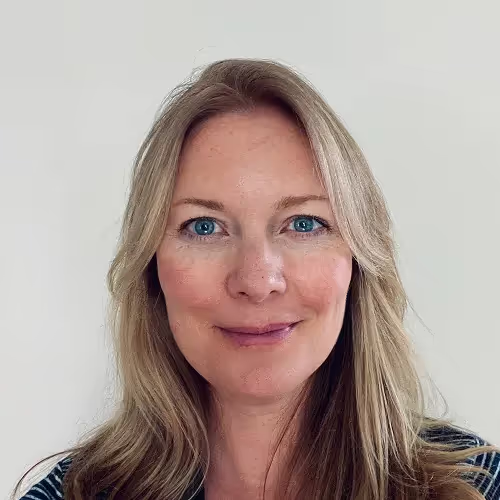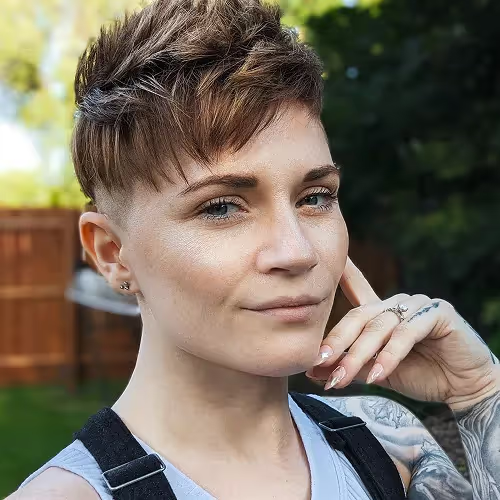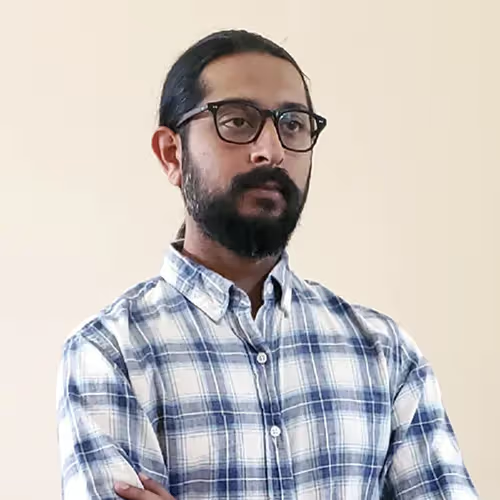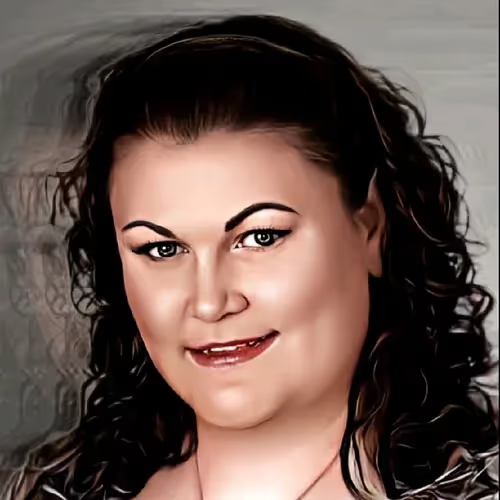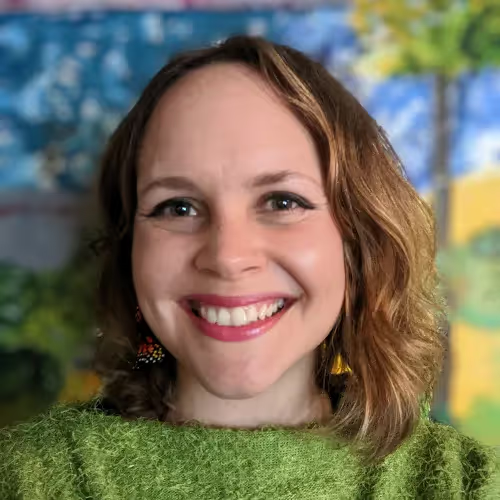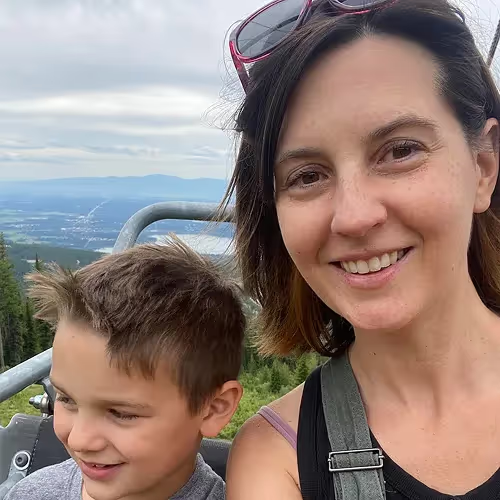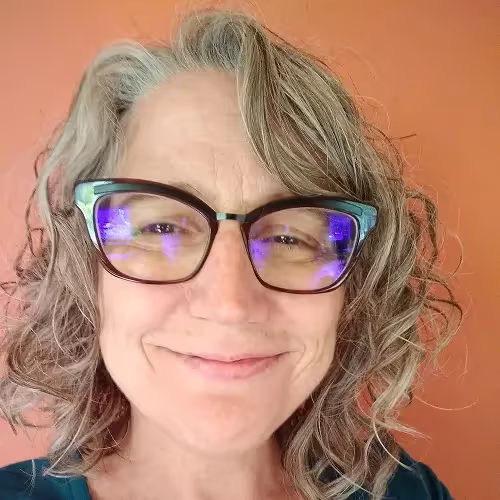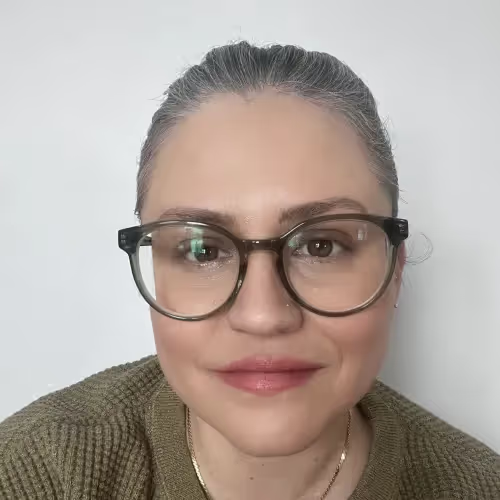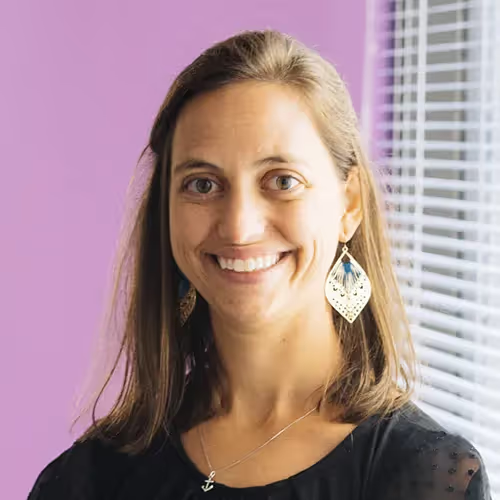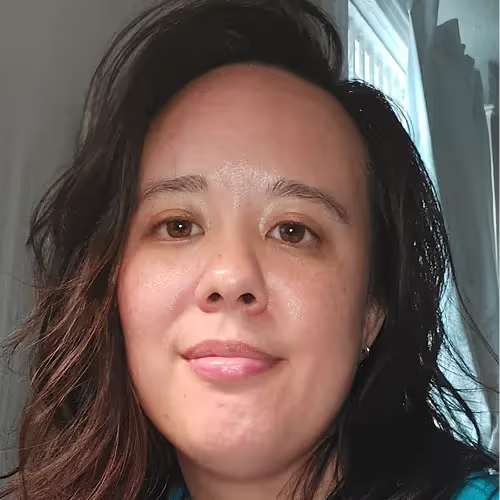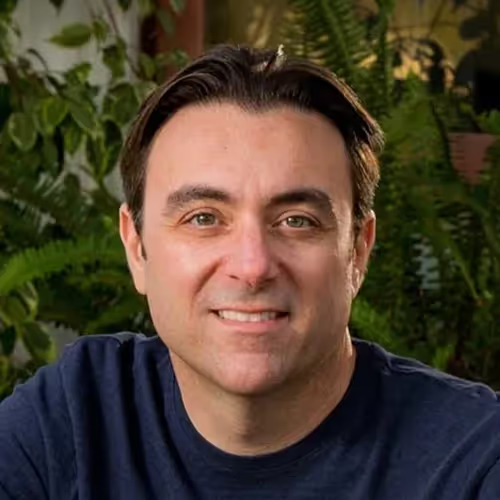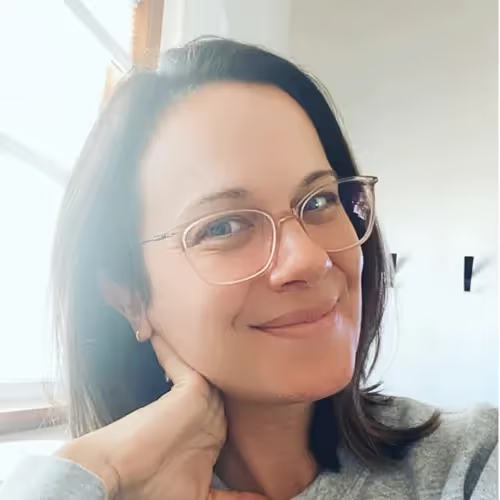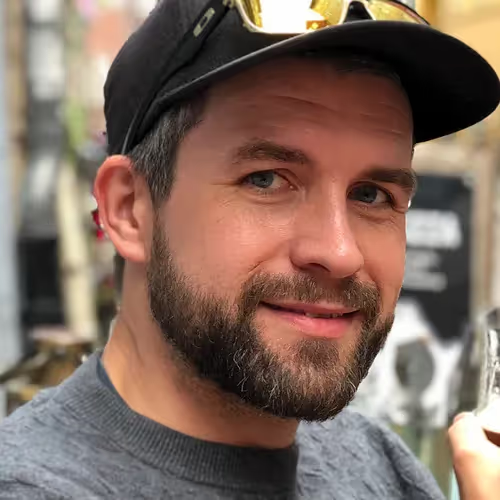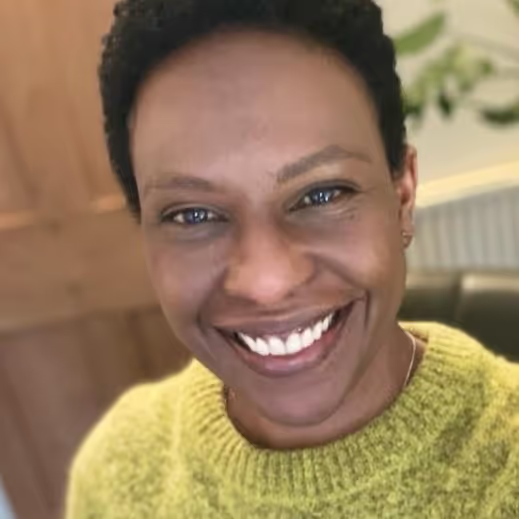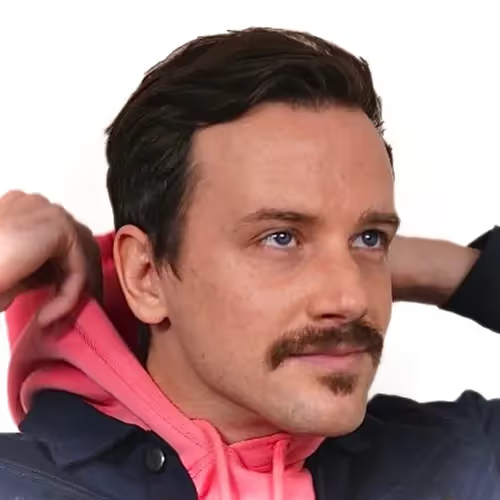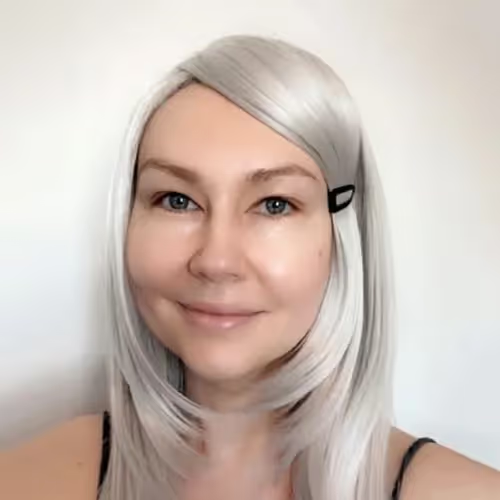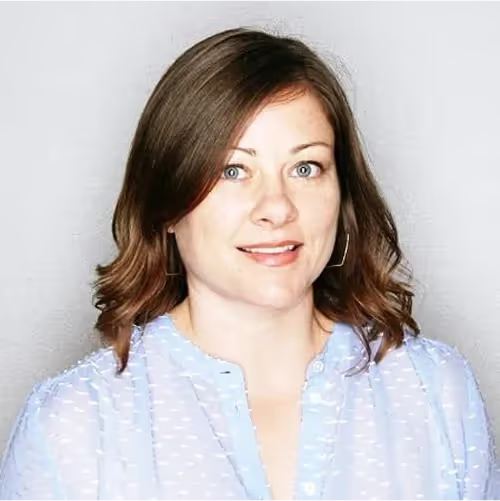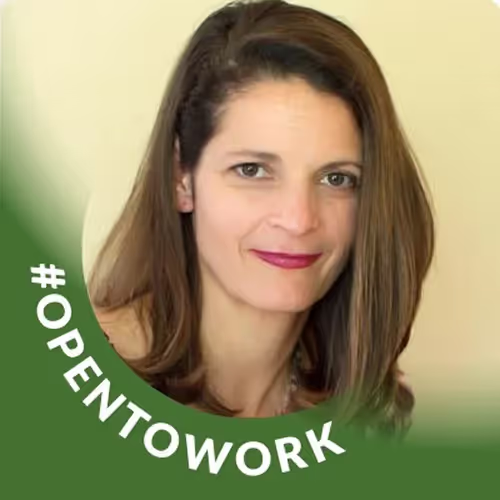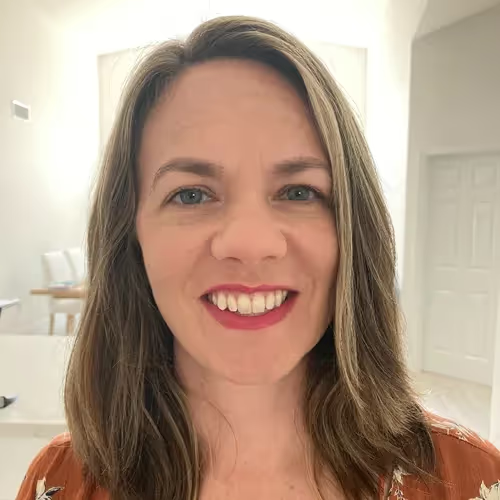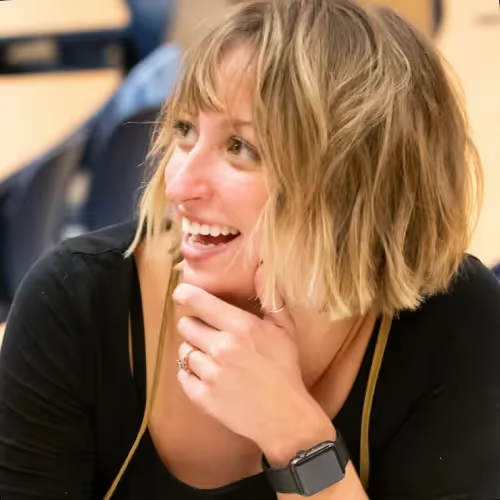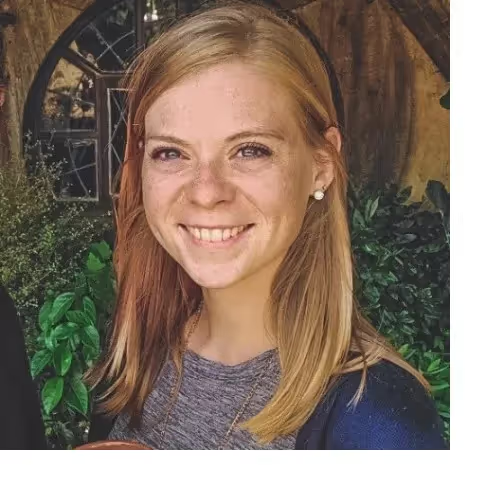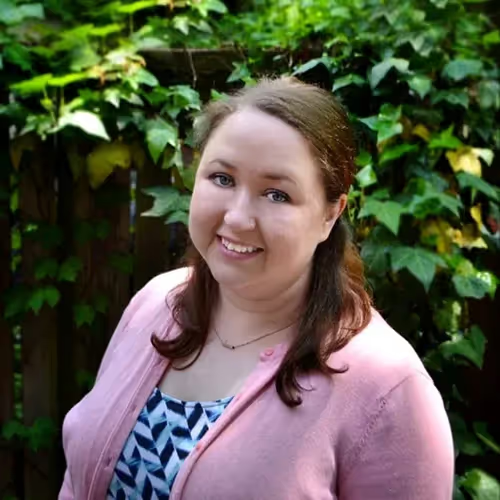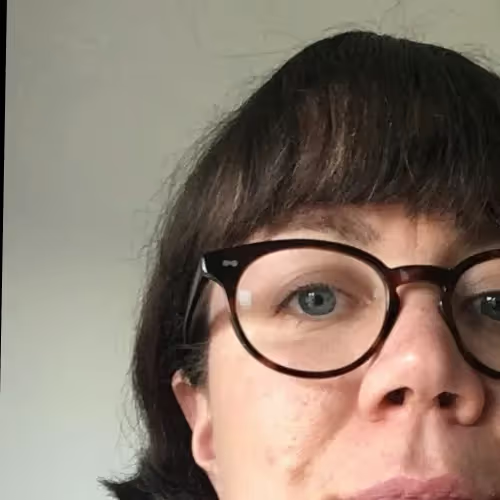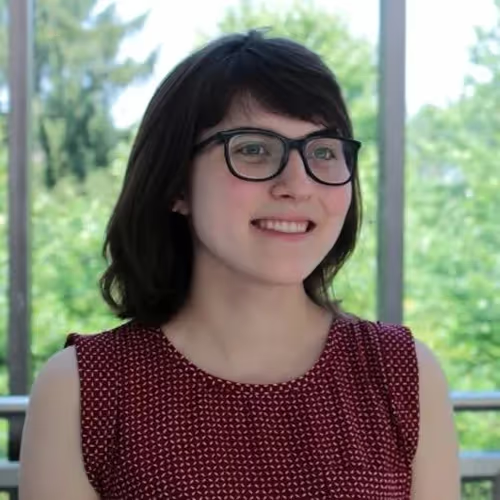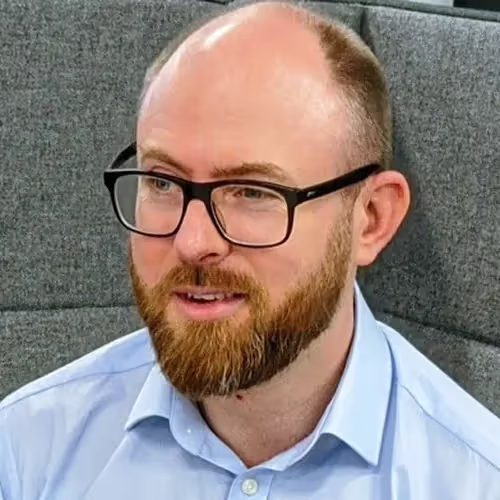
This course changed the way I think about tackling complex problems, taught me to ask more clarifying, meaningful questions, and gave me so many new tools for my UX arsenal. It has helped me connect with developers about projects on a deeper level, and has given me so much more confidence in my work. Worth every single penny and more.

The OOUX program has been a game changer for my design practice. It’s a must-do for all product designers, regardless of experience level. The structured approach to organizing content and focusing on user needs has drastically improved my workflows and decision-making. I only wish I had discovered OOUX earlier in my studies—it's a methodology that should absolutely be taught in design universities to equip the next generation of designers with powerful tools for creating user-centered, intuitive experiences.

The OOUX Masterclass is an incredibly valuable course for learning the ORCA process and how to go about designing systems in depth. There's a ton (and I do mean a ton) of great material, broken down so it's easy to digest something very complex. It's delivered in an incredible professional way but still with a lot of positive attitudes and cheers. It so much more than just a course - it's a whole community.Definitely helping your career and definitely worth every penny!

When OOUX resonates with you, it transforms the way you approach design — because the ORCA process is not only deeply human but also profoundly effective. It’s like learning a new language: its unique vocabulary enhances communication and promotes stronger relationships across teams. Developers, in particular, appreciate it because it mirrors how they think and work.For me, OOUX has made me a better designer by challenging me to think more critically. Even when I make mistakes, the process enables me to learn and grow. It’s the most effective method I’ve found for cross-team collaboration, producing clarity and alignment like nothing else. While the more I learn, the more I realize how much I don’t know, OOUX helps me manage doubts and stay grounded. And the documentation it generates? Invaluable.

Highly recommended the OOUX course! The certification program is so well done & thorough – whether it's the learning materials, assignments, mentorship, forum space, office hours, exam, etc – you can feel Sophia really care about OOUX & us, the students! I'm really glad I took the plunge to do it! It's such a well-spent investment! Thank you to Sophia for gifting OOUX to the world & continuing to iterate on it.

I started practicing OOUX in 2018, and have never looked back. Even five years later, it remains the most powerful tool I have in my design toolkit, and is the first thing I recommend to new designers when they ask me how to build their UX skills. Working with clients across many industries on projects at all levels of complexity, OOUX has been a unifying force for awesomeness. It has allowed me to quickly bring cross-functional teams of business stakeholders, executives, marketers, developers, and architects to a shared understanding and common language on any project or initiative. OOUX has a failure rate of exactly 0% across every project I've used it on, regardless of how much of the methodology I've been able to apply. It has become key to my happiness as a designer, and I wouldn't ever want to be without it.

I have been working in UX for over 20 years, and OOUX has renewed my energy for my job! It's literally the missing piece to my work, and I'm thrilled to bring it to my team. I loved this course! I can see the hard work that Sophia has put into the program and I cannot applaud her enough. I couldn't attend office hours due to a work conflict, so having recorded versions that were highlighted for me "hey, this one talks about Philler objects" was helpful. I also appreciated the video feedback! That was amazing.

As I matured as a product designer, I began to see unaddressed complexity in the products I was designing. This complexity often took the form of a lack of clear definitions for critical aspects of the system, multiple terms for the same element, lack of specifications for standard fields, two different data points with the same name—I could go on. I addressed this complexity in tactical, ad hoc ways that led to small wins but failed to address these challenges comprehensively. OOUX and the ORCA methodology provide a structure to systematically root out this complexity in existing systems and lay a foundation to avoid these challenges in new products. Junior and senior designers need the ORCA methodology in their playbook.

OOUX has been a refreshing oasis amidst a seemingly endless desert of shopworn design methodologies. Sophia Prater reminds us of our industry's roots in structuring solid, easy-to-navigate digital experiences, and firmly grounds her comprehensive ORCA process in sound information architecture practices. But the beauty of this 15-step framework is how versatile it can be and how much it opens our world up to those of our cross-functional partners, and in so doing, welcomes us in to theirs. OOUX has opened my eyes to unintuitive objects, to be sure, but it's also awakened me to my own intuition about what makes for intentional, well-designed experiences. Only now I have a name for that sixth sense. Thank you, OOUX! 🙏🏽🐳

The OOUX Certification course is one the most challenging I have experienced to date and so far the best.The robust learning materials, resources, feedback from Sophia and mentors are above and beyond. Adding OOUX and Sophia's ORCA process to my toolkit is the key to tackling complex design challenges. I look forward to continuing to learn and practice this process. I highly recommend this course to anyone tasked with designing for digital.

OOUX is the best way to level up as a UXer. I didn't have the tools to zoom out and tackle complexity at a system level and now I do. It has helped me think differently and solve problems better and faster. OOUX and ORCA let you see through the complexity to reveal the truth of what the things are and how they relate to each other, so when you go to design those things, they all make sense together (the first time).

OOUX and the ORCA methodology is my new 'secret weapon' for managing complexity and my own ADHD (ha!). As a bonafide over-thinker, this methodology gives me a repeatable, reliable framework to tease out the hidden questions and logical considerations in a system *without* getting too bogged down in shiny new ideas. I'm able to explore and document concepts, ideas, and potential opportunities without necessarily having to move on them *right away*. Plus, OOUX and ORCA has given me the perfect framework to get stakeholders excited about untangling complexity vs. completely overwhelmed. Making the system tangible and malleable means better questions, more effective collaboration and the best set of documentation I think I've ever had going into sketching! Certainly the best part of this program for me has been its flexibility. Every exercise we learned simply gave me another way to tease out complexity and ask the right questions... but weren't so concrete that I couldn't adapt them to fit specific needs in my own work as a content designer. Did I mention documentation? The most beautiful documentation.

I arrived to the program not knowing much about OOUX, but hopeful it could help bust some of the silos Ive seen surface on projects. I'm leaving the program more than hopeful -- I'm CERTAIN that OOUX and the ORCA process is what I've been looking for to put more consistency, rigor, fun, and collaboration into our design process, and help clients feel more integrated into our work too!

The OOUX Certification course has given me the confidence to take on complex design challenges. The value of a framework and methodology for asking the right questions and doing "upfront" thinking about systems BEFORE designing them is immeasurable.

I cannot fully express how thrilled I am to have discovered OOUX. It is just the perfect thing that I needed in my UX journey as I continue to take on more challenging work and face the uncertainties that our organization is working through. This approach really prepares you to become a better designer by asking the right questions to help the team gain a common understanding of the complexities we are facing through building a solid foundation on which to build a system, application, or website that its intuitive for our customers.

This Masterclass certification has been the single best thing I have done for my career. It's given me the security and peace of mind knowing I can figure out the most complex challenges through thoughtful questions and object mapping with my teams!

OOUX and this masterclass has been the single most valuable investment for my UX career. I feel so much more confident walking into new projects and knowing I have the tools to logically and methodically untangle even the messiest of problems. I've always been a chronic question-asker, but OOUX has given me so many more angles to consider in order to design more intuitive, connected systems. And also, it makes the work so fun!!
As a freelancer, I really feel like OOUX is now the secret sauce in my process, and I'm excited about the level of impact I can now provide to my clients with my work.
The emotional (and yes, monetary!) ROI from Foundations and the Masterclass has been crazy good, so I have my eyes on the Advanced certification too. I am a true OOUX believer!

Taking the OOUX Masterclass has added a powerful new tool to my design toolkit—one specifically built to tackle complexity head-on. The materials Sophia Prater has created are eye-opening, pulling back the curtain to reveal the missing pieces in same old design processes we have been following for years. This investment was absolutely worth my time, and I’m already seeing a positive impact on the team of designers I lead as we address complex product challenges on the front lines.
(Thank you so much Sophia, I really enjoyed this experience and am so excited to continue my journey in the OOUX community. I would love to learn more about advance master class opportunities in the future. I hope you and your family have a lovely Thanksgiving.)

OOUX Masterclass gave me the framework to bring more intention and clarity to my projects. I'm designing a smarter, asking key questions, uncovering assumptions early, and helping teams align faster, and avoid costly rework. Overall it has made my design process more intentional from the start.

Going through the Masterclass Cohort has been life-changing for me. From the very beginning, I realized how this methodology truly brings clarity to complex problems. It also helps you grow as a designer into the development and business world, were we often struggle to advocate for users' needs. It made me understand that with a strong foundation, by slowing down, and including everyone as part of the process, we can all align before jumping into solutions. This framework not only strengthened my work, but also boosted my seniority as a UX designer. Once you change your lens, everything becomes clear.

The OOUX cohort program was one of the most challenging, rewarding and enjoyable courses that I have encountered in my career. It really does push you to think about all the nuances underneath the surface and not just the superficial UI. It gave my brain a workout, but in all the best and fun ways!

Are you exhausted from constantly spending all your energy trying to solve user problems while fighting against too much work and too few resources on overly complex products? Let me tell you about OOUX, a proven set of methodologies to set up teams for success. This cross-discipline process builds shared understanding at speed, helping teams prevent problems from the start. If you want to ship better products faster, this is the investment to make.

This was my first recertification of the course and I must say it level-ed up from 3 years ago in cohort 6. I still feel confident that this framework is excellent for anyone planning a digital environment and I appreciate that someone can cherry pick or do parts of the process in different orders. I think bringing in new voices such as Marisa, Jake, and Ally really gives a wider view of the program and different perspectives (requirements, prioritization and business viewpoints, and representation). I also appreciated the design challenge leaders, along with access to the mentors. I still recommend this course for anyone looking to have a structured framework to guide this process. It just makes sense.

OOUX has becoming my “master key” for revealing and taming complexity. The ORCA process is rigorous and thorough, but also flexible and modular. I started benefiting as soon as I learned the basics — and for some people that’s sufficient — but now that I’ve been through the Masterclass I feel 20x more confident and ready to tackle just about anything! Complexity has always appealed to me. I want the hardest challenges. I want to work on those intractable problems that most people shrug off and accept as “impossible”. OOUX and ORCA inspire confidence and provide the tools to take on those kinds of problems — collaboratively, calmly, with patient perseverance and a determination to succeed. Sadly, many of us are not used to working this way… yet. I’m excited to be applying what I’ve learned to my own work, and thrilled to be part of a community that is laser-focused on leveling up our industry and making a lasting change in the world!

Coming from an art and academic background with little experience with UX design, I was really nervous about this Masterclass. But I am so, so glad I did it! It was a full semester's worth of learning in 10 weeks for me since I was learning so many new concepts, but I'm so incredibly grateful I am *starting* a life with UX design in OOUX! And I've already found so many places to apply this philosophy and the ORCA methodology in my life -- from my relationships, to my career, to game design, to creative art practice -- I don't see an end, to be honest. Thank you, Sophia. Seriously. Your brain is a giant gift to this world, and OOUX is such an incredibly, tangible proof of that!

OOUX is the first design methodology that felt natural to me as a content strategist/designer. A product based on objects and how they relate to, interact with, and differentiate from each other feels a lot like constructing a sentence with nouns, verbs and adjectives. It creates order out of chaos the same way we communicate and understand this complex world: through words and concepts. I couldn’t love it more.
I encourage every content designer out there to take this certification course. It will feel like home to you. And you will level-up your skills in ways that will make you an invaluable, strategic partner to product managers, UX designers, and developers. Oh, and create the most intuitive products out there. Based on nouns, verbs, and adjectives. How cool is that?

I followed OOUX for years now by reading the articles and listening to the podcast. Its way of thinking just clicked immediately. Hence the masterclass was something I've been considering for a long time, but wasn't sure about what it would give me in addition to the already available content. I'm so happy to have finally taken the step as it opened up a whole lot of new ways and tools of understanding. The course taught me about questions I didn't know I should ask and tackles the daunting fear of overlooking the unknown unknowns. It not only gives a structure to understanding but acts as a language to talk about the complexity and logic of a system. I always thought I don't want to work on an insurance product because learning about the ins and outs would be a pain. Now I'm happy to take on whatever challenge comes my way.

Hard problems, but lovely people - this is the certification program. The mixture of video lessons, weekly office hours and assignments with feedback from mentors make this a rich learning experience. There is always someone willing to listen and to help.

Having gone through the certification program a couple of times, I would say that it has definitely evolved a lot. I was especially impressed with the requirements round and how MCSFD turned from feeling like I was just writing for the sake of capturing thoughts that I didn't want to lose...to being more strategic and specific about what exactly makes up an object.

This course isn’t an easy trip — it’s a real challenge, and easily the best one I’ve ever taken. It stretched me in all the right ways. What makes it exceptional is how immediately applicable the things are. OOUX taught me to connect requirements to final screens not by chance or intuition, but through a clear, structured, and justifiable process my whole team can follow. And, most importantly, it returned me my passion for design — not for pixel-perfect layouts, but for understanding systems deeply and creating clarity out of complexity.

The OOUX Masterclass Certification is easily the most actionable (and extensive!) training experience I've gone through during my professional career. Working through the design challenge, the feedback and advice from your mentor etc. really helps you understand the concepts at a different level than just reading a book or watching video lessons.
I wish OOUX was part of university curricula for product managers and service designers everywhere. If this approach were more widespread, the creation of digital products and services could be so much more productive and less frustrating. And we'd be better at defining the right problems to solve.

I have been practicing product design for over 10 years at some of the world's leading design and technology companies, and I can't believe how comparatively primitive my thinking has been this entire time! I entered the OOUX masterclass with a mix of skepticism and very high expectations, but it even exceeded them! If you're feeling overwhelmed by the complexity of your product space, or just want to level up as a designer, I am certain that this will be the biggest upgrade to your career so far.

For a very long time, doing the OOUX Masterclass Certification has been a personal goal of mine. I always knew it would require real commitment, but I don’t think I fully appreciated just how much depth, rigour, and growth it would involve. That said, it’s a commitment I would make again without a moment’s hesitation.
What Sophia and the team have created is truly worth its weight in gold. Whether you’re brand new to UX or a seasoned practitioner, or even coming from a completely different discipline, OOUX and the ORCA framework will stand the test of time. It evolves, scales, adapts, and flexes gracefully to whatever the future holds, including the rapidly changing landscape we find ourselves in with AI.
I’ve said it before, and I’ll say it again: OOUX is the wake-up call our industry desperately needs. It’s the calling that will set you apart, in the most positive, collaborative, and empowering way possible. This experience has been genuinely game-changing for me, and I cannot express enough how transformative it has been for my practice and mindset.

Sophia's program gave me a name and face to a method I have been mentally grasping at for years. Once discovered, I couldn't believe how much I looked forward to tackling fuzzy problems. It has given me the confidence to face complexity head-on and the tools to ask the questions that get team members and stakeholders talking with each other and aligning on what actually needs to get done. This which has taken the pressure off of me to "figure it all out" and just "design the thing". Being able to explicitly surface risk and put the ownership of that risk on the shoulders of decision-makers has reduced daily stress and has brought back the joy of designing. The results are real, and your devs will love you!

I just want to take a moment to appreciate Sophia, our amazing mentors, the product owners of the design challenge, and my fellow students, along with the whole OOUX community. You all are the real unsung heroes of this program! I've never been part of an online course with such a warm and supportive group of people who are genuinely committed to helping each other succeed, both in the course and in our career dreams. OOUXers truly capture the spirit of inspiration and excellence! Thank you all for being so awesome!

OOUX Certification through Sophia Prater gave me a process to understand complex systems and how to better work with my PM's and developers. This course completely opened my mind in understanding the micro and macro of a system. Having steps and templates to assist the process makes it more fun and manageable. Sophia's passion and dedication to teaching OOUX is admirable and effective!

Wow! This program is impressive and I learned so much. I love the the way everything is structured and how any complexity is broken into such obtainable goals. The program materials were seamlessly organized, easy to navigate, and fun to engage with. I look forward to practicing OOUX with my next team, and I definitely want to come back for more.

If you want a new, effective way to tackle complex problems in your UX practice, OOUX really is the set of tools you need to help you better collaborate with PMs and engineers and have a stronger foundation in product design. This helps you get beyond just sketching wireframes and creating hi-fi designs but really creating robust, thought-through designs that have a foundation in information architecture. Get ready for lots of "aha!" moments during research and design that will require you to do less rework later.

OOUX feels like the missing glue in the double-diamond process—it bridges the gap between research and design. In so many projects, valuable research feels like it's just "taken into consideration" without a clear framework to act on it. That’s where OOUX and the ORCA process come in. It gives structure to the messiness, turning research into a solid foundation for creating thoughtful, user-centered systems. By the time we start designing screens, we already know exactly what needs to be there and why—instead of trying to piece this together while sketching.

Learning OOUX has given me the concepts and tools to effectively grapple with, and tame, complex design challenges at all levels: I have a clearer understanding of the big picture - the elements needed and how the pieces fit together - *and* all of the tiny details that are required to bring that big picture vision to fruition.

I'm blown away by the amount of work, sweat, and tears that have gone into creating this body of work — it really shows. I was first introduced to OOUX through the 'A List Apart' article shared by a coworker, but it wasn’t until this cohort that I was able to fully grasp and immediately apply it to my projects at work and in my personal life. OOUX has fundamentally changed the way I think about objects and the world around them.

The last testimonial I wrote went like this: "It's not just A way to do things, it's THE way." This statement still holds up 2 years later. The ORCA process continues to provide value and clarity to the way my team plans and executes their work.

Every person who is involved in creating digital products should take this course. This includes UX/Product designs, researchers, content and IA strategists, and product managers who will benefit significantly from OOUX. The OOUX framework will ensure you understand the objects in your product, help you understand the relationships between those objects, and the actions the user will take on those objects. You will have a more thoughtful roadmap and understand which objects, attributes, and CTAs will be part of the different phases of your product. So don't think, and run to sign up for this course!

I first discovered Object-Oriented User Experience (OOUX) through an article on A List Apart and later found Rewired, Sophia's YouTube and Spotify podcast channels. I completed the OOUX Fundamentals course on Udemy and was surprised by my "Is OOUX right for you?" quiz result—one of only two people to achieve a perfect score! This boosted my confidence and motivated me to enroll in this certification program to hone my skills with an in-depth understanding of object-oriented user experience design and better tackle complex system designs.
This is a rare masterclass I truly enjoyed the learning process through the engagements with the mentors, Sophia, and my Cohort 10 peers. Complex system designs have never been easy, and I am glad to have found the OOUX program with Sophia where I could relate to the various terminologies used within the product team, especially with the Developers going forward. The effort to grasp OOUX and ORCA concepts has been worthwhile, and I look forward to applying this methodology in the future!

This course changed the way I think about tackling complex problems, taught me to ask more clarifying, meaningful questions, and gave me so many new tools for my UX arsenal. It has helped me connect with developers about projects on a deeper level, and has given me so much more confidence in my work. Worth every single penny and more.

I'd been wanting to do this certification for years and I'm glad I finally got the courage to ask my leadership to take it. I feel like I've always thought and approached projects in this way, but now that I've taken the course I really know the depths and possibilities. OOUX gives me the core understanding and methodology to really amplify my influence in creating a better experience for customers.

OOUX is a vital tool for any designer working in a complex domain. It helps teams uncover hidden complexity early in the process and tackle it in a structured way.

Sophia, this would be the easiest testimonial I ever written in my life: First, I wanted to say a huge THANK YOU! for creating this course and specifically the certification program. This is not an easy program to go through, but it is hard to describe how valuable it was for me and how much I learned during the past 10 weeks. I highly recommend the Certification to anyone who wants to expand their knowledge of OOUX. Second, I wanted to express my gratitude for the quality of delivery, organization and attention to details that I have seen from you personally. The video content, information abut tools and templates, office hours and feedback on assignments - all was very helpful in my progress. Your passion about OOUX and dedication to your work really shines through every aspect of the certification program and makes it so much more enjoyable to learn.

OOUX is clearer and more actionable than most of the other frameworks I have learned. I love how it is both more user-friendly and dev-friendly.

I learned about this certification through Joe Natoli, whose testimonial convinced me to explore it further. He mentioned that it made design fun again, and I can wholeheartedly agree. I never expected to receive such a comprehensive course with so many valuable resources for this price. I know that similar programs in the USA can easily cost upwards of $15,000, so I'm truly grateful that Sophia chose to maintain an accessible fee. This makes it possible for people like me in Portugal to pursue this invaluable opportunity, ensuring that more people can enroll and benefit from the program.Sophia, and everyone involved in making this certification a reality—THANK YOU! It has been a crazy ride since the beginning of September, but it has been fulfilling. With just three years of experience as a UX Designer, I truly believe this certification will be a game-changer for my career.

I came into the course as a content strategist already familiar with structured content and content modelling, but OOUX has brought a new level of clarity and rigour to my thinking, and a fabulous toolbox for collaborating with colleagues, clients and stakeholders.

OOUX offers significant value in designing and building digital products. In addition to the numerous valuable tools and activities, OOUX advocates for increased thinking, analysis, and prioritization before the design process begins. I believe this approach will enhance the quality of many digital products.

Learning about and practicing OOUX has brought clarity and confidence to my design process. I recommend this program to anyone feeling overwhelmed by designing complex systems. OOUX and the ORCA process will give you the essential tools for untangling complexity, mapping out the system, identifying gaps, and visualizing a system scaling over time.

There’s a lot I could say about OOUX, but the best thing it’s given me is confidence. I feel ready to tackle any system, big or small, and I can do it faster and with way less anxiety. I’m able to get up to speed on new projects in no time or find things in old projects I’d never noticed before. “Reducing complexity” was what drew me to the cohort, and that’s exactly what I’m prepared to do now! The masterclass is intense, but the support is fantastic—and it keeps going even after you’re done!

The OOUX Cohort has taken my approach to product design, which is a blend of UX and technical thinking, into a process that labeled, organized, and clarified my process. The toolset I’ve acquired will not only invaluable to my personal work as a designer, but is teachable and scalable so that my entire design, product and tech team can start speaking the same language.

Object-Oriented UX is an incredibly powerful tool for bringing clarity to any project for yourself, your team, and your users. Its value goes beyond creating robust and user-friendly systems: it also saves significant time during both design and implementation. This approach naturally resonates with designers, stakeholders, and developers. Once you’ve learned it, you can’t help but view everything through this lens, giving you the confidence to tackle even the most complex challenges. OOUX makes you a happier designer.

OOUX is the positive answer to nearly every conversation I found myself having at work. When I first learned about the process it seemed to be the sweet spot between all of my previous roles in UX and Development. It combines standardisation, brilliant techniques and a systematic approach to enable anyone to build bulletproof applications. Surfacing the difficult questions early with a low fidelity approach has been life changing.

OOUX has transformed how I approach projects, encouraging me to embrace complexity right from the start. As a UX consultant, I’m often immersed in new client environments with limited knowledge of their industry or processes. OOUX has guided me in asking meaningful questions, defining the key elements of our system, and prioritizing content to align with business goals.Using the ORCA process with clients has fostered a shared language for discussing our product, enabled us to define requirements early, and minimized changes in development. Even my team members have shared that framing our product through the OOUX methodology has given them a deeper understanding of what we’re building.

My entry point to OOUX was via a late night google search looking for solutions on defining and organizing the design and requirements for an incredibly complex project in a domain that I am new to. My background is in development but I found myself needing to play the role of a UX designer and was struggling to figure out how concepts should be represented in the UI to our users. That night I was just looking for some help on "How to UX good" what I got was so much more. OOUX empowered me to finally specify what are building and what do we have left to do. Prior to OOUX and ORCA, it felt like each week were discovering some new concept we had to build and it felt like the finish line kept moving further and further. Now I have a clear and organized roadmap, I have the best alignment with my developers I've ever had and the level of clarity has been game changing. OOUX is a requirement for any project I am involved in going forward!

UX design problems often seem quite easy and straightforward – until they're not. OOUX forces you to face the "wicked" problems of UX and ask the right questions about user roles, permissions, scalability, relations, cardinality, conditional logic... By asking these questions early, teams can make smarter design decisions – even before any line of code has been written. OOUX is very powerful design thinking methodology that I'm very glad to have in my design toolkit!

OOUX is the sauce I never knew my design pasta needed. Learning the ORCA process through the OOUX certification program didn't just change the way I work...it changed the way I think! Everything feels OOUX-able now. Having OOUX in my back pocket makes complexity feel like a fun opportunity, rather than an intimidating mess. I feel more confident at work and more confident in what I deliver, because I'm using a scalable, flexible, cognitive science-backed method. It just makes sense.

The way most digital products are built is messy and use broken processes. OOUX, by setting a common language among teams early, eases conflict because everyone has more confidence in the end goals of what they are building. Reducing conflict allows teams to collaborate better and build faster. I've done this with multiple clients and it's been valuable in taming complexity.

OOUX and the framework ORCA will gain you so much insights, you never even thought on asking questions about before discovering it. Mind blowing.

OOUX is my new secret weapon to tackling any challenging, complex design problem. I'm not afraid anymore and wonder, where do I start? The ORCA process is a well-thought-out process for handling any level of complexity and making the design happen with more insight. I'd highly recommend this course to anyone who wants to level up their UX skills.

All UX designers and system creators need to take the OOUX Masterclass. I promise you won't regret it! Sophia's wisdom and understanding of untangling complexity are evident in her course. Throughout this course, you'll learn a deeper understanding of how systems work and get new communication tools to clearly articulate with developers and business leaders so everyone can understand, align, and move projects forward faster. OOUX and the ORCA process are game-changers for system creators and our end users! I'm so grateful for this knowledge and the step-by-step process to take into all my future projects!

This course was amazing! There were so many times I was blown away by unique ways to approach complexity in system design. I haven't seen something really new in UX in a while and OOUX did not disappoint. Adding this to my toolkit will be invaluable. OOUX is a guide for asking the right questions of stakeholders, users, and developers. The ORCA framework gives a clear path for defining scope. The process cuts down on rework by not finding new requirements late in the game as each part of the system is revisited for development and user testing. Thank you, Sophia! You are brilliant.

I've learned the hard way that building digital interfaces that have a design-first approach is not future proof. The OOUX certification has been a revelation, helping me seeing the world of users without blinkers on and really noticing the things that matter to them in their context and the context of the product I’m building. The ORCA methodology clicked for me in a way that made me want to redesign everything I'd ever worked on!But here's what really sets this certification course apart: the cohort community is exceptional. You get a mentor who’s going to give you personalised guidance that will challenge your thinking and share their expertise in ways that push you to explore more or look at things differently. I feel the mentors don't just teach – they inspire, encourage, and help you grow both professionally and personally. And then there's Sophia, whose magnetic enthusiasm for OOUX draws everyone in. She's everywhere in the community, sharing insights and cheering everyone on with genuine excitement.Fair warning: this is a hard course but it’s totally worth it. Once you start seeing the world in objects, you can't unsee it - and that's exactly what makes this course so brilliant.

Are you tired of being asked to design products without, like, even understanding them? Yeah, me too. That's why I participated in the OOUX Masterclass Certification. It's equipped me with a new framework for asking questions and wrangling complexity in ways that result in high quality user experiences. Gasp! It's possible, friends.

The OOUX Masterclass was so much fun. I've long taken an object-first approach to product design, but until now it felt very much a solo endeavour. With the skills I've developed over the past couple of months I'm more excited than ever to practice, collaborate and TEACH OOUX with my future teammates. In such a competitive market for designers, OOUX could just be the missing ingredient to level up and take the next step in your career. Do it!

OOUX has provided me with a path to grow and excel as a content designer because I am more empowered to drive design from the start with the skills I gained in the certification program. It's easy for content designers to feel like they don't have as much to offer as their UX/UI counterparts. Being an OOUXer doesn't just level the playing field, it gives me an advantage because I can understand complex systems and the information that flows through them in a way that few designers can.

OOUX has completely shifted the way I think about design. I won't sit here and say it will give you a magic wand to instantly shift your process - it definitely takes time and work! - but just over the course of this certification, I have noticed that I am incorporating OOUX concepts into my work day-to-day, even in small ways. I have a content modeling background, and OOUX really boosted that experience - it gave me the language to articulate and more tangibly conceptualize principles that I previously wasn't able to explain, or that I didn't even realize I was doing. And the best part about OOUX is that it's scalable and can work even in small pieces, so even if applying the entire process isn't feasible, it can absolutely be utilized to improve user experience in pretty much any situation.

OOUX isn’t the most straightforward concept to learn, but it's worth the effort! Diving into it has been transformative, especially for tackling complex problems that traditional design methods struggle to address. OOUX shifts the focus away from surface-level pixel-pushing, allowing us to build solid, scalable structures that create real value. By mastering OOUX, you’re learning skills that keep you relevant and irreplaceable—focusing on strategy and structure that AI can’t easily automate. It’s challenging, but it’s the kind of knowledge that makes you a stronger, more future-proof designer.

It wasn't long after I learned about OOUX that I felt like it could be a missing piece of my skillset and practice as an early career UX designer drowning in complex problems to solve. I dove into the certification course almost right away, wanting to learn as much as possible, and proved myself right. Even with how rigorous it was, I could immediately feel the change in my thinking and the questions I was asking in my work. I also appreciate the level of support that was offered - the forum, a mentor, office hours, and the concierge to help track it all! I feel proud of completing the course and wish I would have found out about it even sooner in my career; it's probably the most relevant and impactful professional development I've gotten in UX design, especially as someone who started more on the UX research side of it. I'm excited to continue practicing it and applying it to my work.

OOUX helped us move from a 35% hit rate with our A/B testing to 80%. This is because the concepts we created and implemented were so much more thoroughly tested and designed, ensuring we had user and business buy-in before we wrote a line of code.

Through re-certification, I appreciate how much Sophia has evolved the ORCA process and how she teaches it. I’ve enjoyed building on and refreshing my knowledge!

Going through the OOUX Certification program was like being handed an organizer binder for my systems-thinking brain. Instead of struggling to piece together all the unconnected bits and pieces visually, I now have a solid process and principles to help make sense of any digital systems structure.
The OOUX Certification program has not only expanded my skillset, but increased my confidence in my ability to provide consistent and scalable human-centered experiences for complex digital product systems.

OOUX has brought order to the chaos that UX design can be at times. Not only is it the missing link between research and design, it's also the user manual, the treasure map, the shared source of truth that can unify a team. OOUX has tremendously improved my UX of doing UX.

Completing the Object-Oriented UX Certification was intensely educational - I can absolutely say it dramatically leveled up my conceptual design skills. The step-by-step journey mapping objects, attributes, relationships and actions finally structured previously abstract ideas of putting users first.
At the same time, wow did the program require serious commitment above my regular work and life schedule! I significantly underestimated the workload tackling exercises already strained from my demanding daily responsibilities. Many late nights battling workbook fatigue taught me slowing down enough to truly transform thinking takes both immersive time and support.
My big takeaway was intricately understanding experience requisites before any screens or flows unlocks essential clarity - for colleagues, clients and users alike. It powerfully accommodates chaos. But more importantly, elegantly hints at order hiding in apparent complexity. I’m so glad I pushed through because this philosophy fundamentally empowers my work with foundational confidence and fresh perspective. However, be prepared to earn that payoff around professional and personal obligations if also working full-time!

Learning OOUX has given me the confidence to guide my team through the ORCA Process. I am excited to start teaching and sharing what I have learned with my network. This process is a meat grinder for the complexity of any system.

Even though I have been practicing UX for about six years, after this course I feel like a complete UX beginner. After this course, I feel that now I have a very broad and strategic perspective on how to build digital systems and tackle complexity, my only regret is that I didn't know this earlier. I promise to keep learning, to keep honing my skills in this area, and to help more people apply this methodology.
Regards, Sophia You're a genius!

I feel like I've just scratched the surface on my OOUX journey, and discovered a magic sauce to tackle complex design problems. Tricky system architecture, hairy roles and permissions, arguing with product about requirement phases? I can use ORCA to uncover clear user mental models, uncover research needs, and validate my research step by step with documentation that allows for phased development, that's both manageable and scaleable. I'm excited to implement this into my work, and to continue to nerd out with this new community.

This course was a worthwhile investment in my career. I loved nerding out about UX and getting a new perspective on the craft. As a content designer, I think I can definitely use these new tools and ideas in my day-to-day.

I highly recommend the certification course if you want to start OOUXing. You get so much out of the hands-on practices and office hours. Did I mention that all feedback on your assignments is personalized and written just for you by a real mentor? Such a great experience!

Having completed both the OOUX self-paced course and the OOUX Masterclass, I've become a much more confident UX Designer. This curriculum, along with the support from my mentor, instructor, and fellow OOUXers, has equipped me with solid tools for my UX toolbox. I now feel even more prepared to tackle complex problems, whether starting in the messy middle or from scratch. The OOUX methodology provides designers, or anyone dealing with a problem, the vocabulary and strategies necessary to communicate and achieve a more user-centric solution that is also easier to execute and ship.
I feel that the OOUX courses have been well worth my time and financial commitments. It feels great to turn around in 10 quick weeks to find myself a more well-rounded designer prepared to benefit my users, teammates, and company.

OOUX is an incredibly valuable tool for designers looking to tackle complexity. As someone that works with a complex products, I feel like I've been given the missing piece in my skillset to allow me to have a structured and confident approach to my practise, both in my own design and how I collaborate with different roles in my team. The course was perfectly structured, and the support from Sophia and her team of mentors was phenomenal!

My journey with UX involved completing 2 certificate programs. But even after completing countless classes, I still didn't feel prepared to fully be a UX Designer -- or work in UX -- partly because I didn't have a great handle on how to collaborate with developers.
When I was first introduced to OOUX, I seriously doubted its usefulness. Where was all of the rapid prototyping? Where was all of the visual design? I'm so grateful for Sophia's unrelenting work in showing the worth of OOUX, because once I saw how useful OOUX really is, I also saw how it was the missing piece in preparing me to work in UX with confidence.
Thanks to the community and my mentor, I've made it this far -- even when I doubted myself. I'm proud to have wrestled with really complex puzzles, indebted to those who've gone before and paved this delightfully tricky OOUX path, and excited to see what doors open as a result of completing the program!

OOUX is the bridge I never knew I needed, and now can't live without! The OOUX program is thorough, hands-on and instructed through a community of awesome people genuinely interested in improving the way in which we design digital systems. It's a great investment and is only getting better, so get involved now!

It is highly recommended to learn OOUX and ORCA from Sophia V Prater if you are working with a digital system, regardless of which job role you are working for. It is mind-blowing and will guide you with a systematic process/methodology to tackle complexity. Once you start using it, you cannot drop it. Beyond methodology, it shares an important philosophy on improving team communication, finding more impactful questions, and achieving sustainability development.

OOUX is my go-to toolset for helping teams get clarity on what they're building. On large projects, it's all too easy for individual teams to diverge without realizing they're speaking different languages. OOUX is a great way to keep everyone aligned and executing on delivering a great product.

The OOUX masterclass has proven to be an exceptionally impactful (albiet challenging) addition to my UX education. I'm now equipped with a powerful tool to navigate complex and demanding projects and to bridge my research insights into a clear and actionable design roadmap. I can't wait to roll up my sleeves and put my new OOUX skills to use!

This OOUX program was fantastic. The methodology and process itself is thorough and well-crafted. Using it has completely changed the way I see UX and has already positively impacted my work. I also think the course itself — the videos, project, mentorship, even the exam — was really well done; it was interesting, informative, and well-paced. I am impressed by the quality and content and grateful for the learning experience. It has already paid back the time and money I invested into it!

OOUX has been an amazing journey for me. My whole UX career has been a slow grind and a lot self taught. However, learning OOUX has helped me be better prepared to tackle complex problems and learn how to better collaborate with developers. The skills I learned taught me how to really think before jumping into Figma to design. Now I feel a lot more organized and my process has forever changed for the better.

OOUX brought my team together. It was the missing ingredient in finding common language to talk about complex concepts. Once everything is broken down into cute colorful stickies, even the most daunting challenges become manageable and, eventually, crystal clear.

Best money spent on my design career! After the OOUX masterclass, I felt excited to tackle complex projects with renewed passion and confidence. On a personal note, I had a job interview right after the course. I never felt so confident and articulate before. They had a shapeshifter right on their homepage. When they asked me what I would do with their site, I was like "I'm so glad you asked!" :) TY!

As a seasoned product manager with a focus in user experience, the OOUX course has really helped me to understand the importance of waiting to start "solving the problem" with wireframes/mockups, and provides a valuable methodology (ORCA) of how to bridge that gap in the double-diamond between defining the problem and developing a solution.

This program has been the most challenging, most rewarding step in my UX career. The ability to model object maps, understand problems through user-first noun structures is a game changer. It feels like levels of ambiguity are removed by applying this methodology when solving user-centered problems.
The ability to bring others along and have an aligned understanding of what is necessary for both business and the user with this low fidelity is a game-changer. Excited to further my understanding in OOUX as I apply in my practice!

Learning about OOUX and the ORCA process has completely changed my approach and perspective on design. I no longer see complex systems as daunting challenges but as engaging puzzles that I get to tackle with my team. Followed by the rewarding process of refining those solutions together with our users.

Discovering OOUX in 2015 was a game-changer for my product design journey, providing a solid foundation that has shaped my approach ever since. Becoming a certified strategist in 2020 with the ORCA process expanded my toolkit, empowering me to confidently address complex challenges and be an integral part of early conversations with product managers and engineers. Now, with the recent course completion and upcoming re-certification this year, I'm excited about the new insights gained and confident in making an even bigger impact on my work. Grateful for the continuous evolution of my design philosophy.

Completing the OOUX Masterclass has been a wonderful journey that most definitely exceeded my expectations. The depth of knowledge imparted, and the practical insights gained throughout the course have fundamentally shifted my approach to systems design and development. The ongoing support from the Sophia, the mentors and the community created a singularly unique collaborative learning environment for me. The ability to connect with peers, share insights, and seek guidance has been invaluable, fostering a sense of community that I know will extend beyond the duration of the course. Sophia Prater's passion for OOUX is contagious, creating an environment where curiosity and exploration are not only welcomed but celebrated, thank you Sophia!

This course can only be described as a transformative journey! By adding OOUX to my toolkit, I now have a robust and repeatable methodology that I know will improve my ability to navigate complex design challenges. The emphasis on collaboration and shared understanding among cross-functional teams and stakeholders is the key to any design success, and this in my view is OOUX’s most important weapon! Besides that, the course has an ample support system, with check-ins with the mentors and with Sophia, personalized feedback and chats with fellow cohortians - all of it turned what was supposed to be overwhelming into something super easy to navigate. It was an engaging and rewarding experience, and I hope to stay in touch with this beautiful community.

For me, this was refreshing to use my brain and learn something new in the UX field. I've been doing UX work for over twenty years and I always try to keep learning, but nothing has felt new in a long time. I work with a lot of career changers who have gone to UX bootcamps and I can see how helpful this is for thinking holistically and critically. They should definitely be teaching this in those programs.

I am impressed by how many "old" UX problems OOUX and the ORCA process solve. Need to quickly understand the context of the project you've been dropped into? OOUX. Need to justify additional customer research? OOUX. Need to prevent design teams from recreating the wheel? OOUX. This methodology has something for everyone – developers, product peeps, researchers, writers, marketers. This program gives you the ultimate utility belt for handling software projects.

OOUX is brilliant because it brings a whole bunch of detailed but disparate methodologies into a framework that's both collaborative and repeatable. Some disciplines and approaches just throw academic theory at you and require you to work out the practical element yourself. OOUX is both: the theory and the practice.

This is a seriously deep course with the kind of thoroughness and specific examples that I've only dreamed about getting in other similar courses. I truly feel like Sophia and the mentors really want each of us to succeed.
It's a commitment to be sure, and I'm already looking forward to going back through the content again. There is a lot of practice that I need to do in order to get to the point that I can have the fluency they do. It's pretty amazing knowing that I even somewhat can come out of this course, read a few sentences about a product, and be able to begin assessing what objects, relationships, actions, and attributes might be needed to make it successful!
Despite ending up with far less time than I expected, I came with high hopes. I've been dragged down by many fundamental disagreements in past product teams and wondered if OOUX might be able to give a glimpse into a different way to organize some of the more frustrating parts of work. I believe OOUX can definitely transform my thinking and my work with practice. I'm grateful to be welcomed in to this community.

This was an amazing and challenging program! This is the way to complement the practice of UX from the understanding and respect of the the user's real-world mental model. OOUX simplifies complexity, this was really enriching for my growth.

Having completed the OOUX certification program and begun to apply its methodology, I feel a bit like the Eddie Morra character in Limitless. I would consider myself a highly-ambitious individual, but prior to OOUX, I was coming up with solutions for complex UX problems in an inefficient manner. With exposure and understanding of the ORCA process, I now put objects first and it has TRANSFORMED how my brain interrupts a problem, decides what's really important, and create simpler and more powerful experiences. With OOUX and ORCA, I am now firing on ALL cylinders.

OOUX is your ace card when you find yourself thrown into an unfamiliar domain (which should be happening! You're a designer after all...). The artifacts from the process don't just help you visualize the messy parts, but provide a tool for shared understanding with your cross functional team members.

Working as a compact team in fast paced agency environment, things can get quite messy early on. Many times I have found myself in the middle of the design diamond right between an extensive research phase and the need to start defining some Information Architecture. I don't know for you, but this was rarely a "hit the ground running situation." Sophia's program gave me the keys to a process that turned this limbo into a structured approach which pays dividends in the long run.

I have searched high and low for continuing education courses in UX for years and OOUX is the first course I've found with immediate and proven value that certified folks actually recommend and rave about. I wish I had OOUX 7 years ago. Take the course, you'll understand. I'm a UX idealist but this course really teaches you how to get away from that and tackle any problem with any team. I'm excited to immediately apply this in my career and continue to learn as OOUX evolves.

Wow, just wow! OOUX has revolutionized the way I approach my work as a UX designer and even how I think about the systems I encounter everyday off the clock. I had first heard about OOUX a couple years ago and quietly lurked seeing the potential but not quite understanding how I fit into it. I finally decided to go for it and am 100000% obsessed with everything I've learned and have been finding ways to implement it into all my work. The Certification Program really packs a punch by holding you accountable to keep learning, and dishes out all the deepest, darkest secrets to untangle complexity of any project.

I have been in UX for 3 short years and have taken a few courses through Udemy and received my Nielsen Norman Group Certificate in UX. There is nothing out there, to my knowledge and extensive research, that provides more value than this course. I have been feeling a bit lost in the sauce, suffering from imposter syndrome in my new career path (former Conceptual Graphic Designer) but this course has made me feel like I can finally bring real value to any team. I've struggled with people asking me to just wireframe things and trying to figure out all the complexity on my own along the way. Wireframes have value, but the amount of time you waste creating them when you don't have the answers to the complex questions has been a constant struggle. I can't wait to bring this back to my development teams and help us all get on the same sheet of music!

The ORCA process provides a set of tools and a process for analyzing user research, domain information, and stakeholder directions, yielding a set of design outputs with phased implementation and extensibility "baked in". It takes nothing from creativity, while adding the safety of carrying the important details all the way through, into the final design.

Sophia's ORCA methodology helps focus UX practitioners on the main pillars of any system: objects, object-relationships, calls-to-action and the attributes that make up the objects. The documentation, templates and deliverables she provides at each step of the way are essential and help us with hand-offs between business, research, design and development teams. Thanks for all the hard work you put in to making this process so comprehensive!

Undoubtedly, OOUX has been the most beneficial thing I have done to improve my skills and progress in my career. I must admit that even my second certification was not an easy task, but achieving something worthwhile is rarely easy.

Running through all the OOUX steps takes out all of the guess work of how and what should be in a design. A lot of the stress and frustration of designing for something new has been eliminated by the time you get to the representation round. Even if I don't get the chance to go through all of the steps within OOUX, I feel there is something within the process that helps untangle the complexity of every project!

The OOUX certificate program is wonderful—a welcoming, challenging, beautifully structured exercise in approaching design through objects first. I already know the ORCA method will speed up and enhance my work and lead to more usable products!

As Design evolves, the systems one works with must adapt to meet the needs of impact-led Design. Looking at Design’s double diamond, Object Oriented UX is a tactical methodology to help bridge the gap between the discovery and solution spaces.

I started out as a self-paced student. After months of doing it alone, I realized I needed to be part of the cohort structure so I dove in and I have no regrets. Was it tough? Hell, yes! BUT I have such a coherent understanding of OOUX and ORCA as a viable framework from which to continue my practice as a content designer. It's been really great having something like this further build how I already think about when I work on products with my visual design colleagues, and the value I bring to the project when I get us to pause and think through information architecture, hierarchy, and product narrative.

The OOUX certification course has fundamentally changed the way we do user experience design at OddBird for the better! Clients, designers, and developers establish a shared glossary of terms and a deeper understanding of the requirements and priorities at the beginning of each project instead of somewhere in the messy middle.

Even the smallest project or engagement can benefit from OOUX! It's absolutely amazing what just 30 minutes of object mapping can do to increase understanding of any problem. Once I tried OOUX and ORCA, I was hooked (and you will be, too!)

It was TOUGH and thought straining for me, but so beneficial when you get to the end and see the results. It's so helpful to see the well defined objects and the ability to know how to sketch and put together prototypes based on real defined things, not just made up or quickly thrown together without research and prioritization. I can't wait to work this process into my UX work - it's a great addition to my toolset!

I took the OOUX Masterclass in hopes to find new, refreshing and innovative ways of design thinking...and it did not disappoint!! I have attended other UX trainings and taken other courses but nothing compares to the OOUX Masterclass. The content in the course was full of rich methods that allowed me to start practicing right away (even if I didn't fully get it yet). Now that I've completed the course, I'm eager to use the full ORCA process to tackle the many complex problems that our users are faced with.

The OOUX Masterclass Certification was one of the best things I've ever done to further my growth in the digital world. I was scared, clueless and intimidated by the amazing talent that was in the cohort with me but the experience ended up being exciting, enlightening and humbling. Everyone was so supportive and we all learned so much from each other. Sophia is a wonderful teacher whose knowledge is impressive and personality is even better - always making you feel comfortable. I look forward to growing in the OOUX world and seeing what the future holds!

This program is definitely a commitment! But by the end of it all, I really think that I have been equipped with tools and knowledge that will help me become a better designer no matter what field I am designer for. The program is one of the best designed I have attended and the feedback is custom tailored for you and our projects. So you actually walk away with points to work on every single week from professional OOUX mentors. I would recommend this program to any designer who is looking to step up their game and focus creating even more value for client of company.

As a seasoned designer, I've attended my fair share of UX courses, but I can confidently say that this course has transformed the way I approach complex design projects in a way no other course has. It has been nothing short of a paradigm shift for me.
Before taking this course, I found myself shying away from the complexity that often comes with designing intricate user experiences. But now, thanks to the OOUX course, I find myself saying, "Bring it on!" The techniques and methodologies taught by Sophia have equipped me with the tools and confidence to tackle any design challenge head-on, no matter how intricate or daunting it may seem. Sophia is a phenomenal teacher. Her ability to break down complex concepts into digestible and actionable steps is second to none. Sophia's engaging teaching style, coupled with her genuine passion for her students' success, creates a learning environment that is both empowering and enjoyable. I cannot recommend this OOUX course highly enough. Whether you're a novice designer looking to gain a solid foundation in UX design principles or a seasoned professional seeking to elevate your skills and approach to complex projects, this course is a must. Thanks, Sophia!

The missing piece to the puzzle that is UX! I stumbled across this philosophy/methodology about a year ago and read everything I could find on it. However, the articles were only shedding a maglite-size light onto the complexity I was wrangling with. Completing this course and especially having weekly check-ins, discussions with fellow cohortians and 1-on1s with Sophia have given me more insights and revelations than I thought possible at the beginning. I now feel like the maglite has grown to a floodlight and no complexity monster can keep hiding under the bed. Thanks so much!

The ORCA process provides a structured approach to analyzing and identifying the objects, their attributes and relationships and their Call-to-Actions essential to solving a business problem. I have used object oriented practices for analyzing, defining and developing applications since the '90s but have never had such a detailed methodology to document and communicate findings and to easily prioritize a release strategy. The certification course is run and supported by people with such passion for the process that it is easy to have fun even though it is a challenging pace. Sophia's passion and energy is amazing and the mentors all have their own unique and extensive experiences. The course takes you all the way from analyzing requirements and user documents through documenting the key components and attributes, to developing a feature roadmap, and finally to developing prototypes for validating your findings and testing the assumptions. I had a blast on the course and made a number of long-term friendships that I hope will result in successful collaborations. I am glad I chose to take the time to participate in this course.

The OOUX Masterclass delivers completely. If you're looking for a robust and flexible methodology to untangle complex problems and create intuitive and impactful design, this is the thing you likely need. Sophia's ORCA methodology is a fulcrum for designers and strategists ambitious for understanding. Through excellent instructional design and several student supports, she explains, models, questions, explores, and encourages. I feel solidly confident as a content designer that I can dig into any complex problem and strategize a way forward.

I am certain that OOUX and the ORCA process is what I have been looking for to break and process all the complexity and deal with the silos in SDLC. It will bring more consistency and rigor into my design process and help me bring designs closer to the vision of the clients I work for. It's a must have toolkit in every designer's processes.

OOUX is a philosophy that has changed my mind about what my design process should be. I think this philosophy and ORCA methodology are a great tools that will structure how I discover, define, design and build solutions in collaboration with dev and product teams. ORCA process is very robust but at the same time it gives you several alternatives to incorporate it in small pieces on your every day process. This program was really challenging because of all that you learn, the level of detail, explanations, examples, exercises, material, guidance are so good and extensive that you need to be at that same level of comprehension, but at the end I can tell you, the effort pays off.

I've really enjoyed learning the OOUX methodology with Sophia Prater, and I'm super pumped that I have this amazing tool on my belt. It's a great way to unravel complexity, build with intent and structure, and overall has been the most organized process to understand the purpose of what we're creating. OOUX is next level for experience design.

This program was so thoughtfully designed from the ground up. I loved how all the course materials were structured and how engaging the office hour sessions were. The program will not only give you a toolbox for tackling complexity but also give you the confidence to face it head-on. If you are looking for something "easy breezy," this is not it. Sophia and her team will challenge you in this course, and you'll become a better designer for it. The beauty of OOUX is that it is so incredibly interdisciplinary. I can't wait to continue finding opportunities to apply it professionally and personally.

OOUX is a philosophy which can be applied in any product domain - B2B/B2C. I literally learned a completely unique perspective on solving design problems. I am always keen to add value to the product and I am very happy to have this OOUX skill in my quiver for the same. It's a very well designed course by Sophia. Mentors for this course and Sophia herself are very involved with the students, which was really awesome while going through this OOUX journey. It's definitely a solid and intense course so one really needs to deep dive, but that's how the course has been designed to avoid gaining only superficial knowledge and allow the designer to push a bit to expand their horizons. But and "no but", it's a very rewarding course in all ways. The time, energy and the money was all worth it.

It's been a fun and fruitful journey learning the ins and outs of OOUX. I'm already seeing how this approach to breaking down complexity, asking deep questions, and really digging into the objects within a system is making me a better content designer. Through the discovery and requirements stages, I can start defining terminology, considering language for labels, proactively think through error messages, tooltips, and other content elements much earlier in the process. Also, I've found that I'm looking at designs through a different lens now, surfacing questions around placement, prioritization, and suggesting alternative designs for cards, new ways to sort and filter, and more. I love the deep inquiry required in the ORCA process and feel confident that I can help my team take on any complex design challenge with these new tools and skills. Thank you!

OOUX in confectionary speak is the solid, yet scrumptious gingerbread biscuit providing sound support for all the candy, morsels and frosting that make up a tasty gingerbread house (system). Paired with Sophia's ORCA process, the system, project, really whatever problem you're working to solve will seem all the simpler even in its innate complexity. I had so many lightbulb moments during this course, prompted by the thorough videos, mini quizzes, discussions in the forum and insightful feedback from Sophia and her fabulous team of mentors. OOUX and ORCA enriched my approach to system design and provided the tools for improving collaboration with stakeholders, developers and other designers in a clearly defined, inclusive and holistic way from project conception to launch.

Sophia's OOUX/ORCA certification program is the best UX learning experience I've encountered. She is generous with materials, 1:1 time, and support. (I wish I had this much support in college haha). And I feel confident that I can bring OOUX to my organization and positively influence our design process and the experiences we build.

OOUX made me understand what makes up a system and how to make it a living creature with a roadmap of its evolution and obstacles to avoid in order to keep it healthy and thriving. And involve other co-parents (developers, SME, PM) in keeping it alive and full of life.

OOUX helped me understand how important it is to really understand the objects / things that provide value in our products. It made me realize how many duplicative objects and attributes we are using and how they are perpetuating confusion with our users. Although it's just a starting point, I feel like I have more confidence to really help our team define our objects, so we can create more intuitive experiences.

I first heard about OOUX about two years ago. I immediately liked the idea and started listening to the OOUX podcast and reading almost all the materials that were publicly available. I was sure that OOUX would help me become a better digital product designer. I enrolled in the OOUX certification course and was delighted with the amount of material and the extremely detailed ORCA process designed by Sophia. She exceeded all my expectations. Although complex, the course is well laid out and not difficult to follow. The tasks are well-designed and make it easy to understand and follow the whole process. Now that I've gone through everything, I can't wait to start putting the newly acquired knowledge into practice. Sophia is a great teacher and has created a great OOUX community full of extraordinary individuals that are always ready to help beginners. I recommend the OOUX course to everyone who wants to become a better UXer and solve complex problems with greater efficiency and less headache.

As a content designer, I've often found myself in hi-fi mock meetings asking, "okay, but what is that thing? Why do we need it?" At times, it's put me at odds with design thinking because it feels like truly understanding and defining the system isn't a requirement to just toss some wireframes down. OOUX really gave me a voice and a place to not throw away design thinking, but to redefine it to be more wholistic. To tell truer stories. What I love most about OOUX is that it's a framework that takes term and concept definition work seriously. It starts with definition, creating a shared language, and telling the true story of a system, all things that get sacrificed to new feature gods. From there, anything is possible.

Sophia Prater's OOUX course is well worth the money and the time! As a senior designer who is already familiar with the basics of design thinking and user experience design principles, I found the concepts and methodology taught in this class to be very relevant to my current projects and skill level. Sophia's video lectures are thorough but delivered in a lighthearted way making them very engaging to watch. Her teaching style is to "learn by doing" as we had an end-to-end design "practice" problem to work through and really solidify the learning. Sophia was very accessible through office hours and async review to debrief on any concepts we found hard. Finally, we have life-long access to OOUX templates!! This last perk gives me a lot of confidence to hit the ground running with OOUX and apply it to my daily work. I highly recommend this course to any senior designer looking to level up in their career!

The OOUX philosophy and the ORCA process should be UX fundamentals. It's not just A way to do things, it's THE way. The steps contained within the ORCA process mirror how the Designer should be at all times: empathetic, collaborative, open-minded, and relentless. I love how it handles complexity by acknowledging it, embracing it, and turning it in to something that a User understands. The dust bunnies of complexity have nowhere to hide.

Everything about this course has changed my approach to designing. One thing I loved about this course was that it helped me increase my critical thinking skills. I'm able to methodically and thoroughly work through a project and ask better questions to myself and my stakeholders to ensure I'm not designing on top of assumptions or leaving gaps in the experience that I didn't know to design for. And even better, I can articulate design decisions with confidence without second guessing..too much, it still happens but less frequently haha. I now look forward to tackling complex problems knowing I have OOUX in my designer's tool box.

What I really liked about OOUX is how it delves past the shallow parades of beautifully-designed interfaces (that some UX bootcamps are so known for) and gets you knee-deep into the important bits. The bits that are not quite as glamorous in a UX portfolio, but are crucial to building a product that's truly valuable to users.

Before I was introduced to OOUX, I honestly didn't think I wanted to practice UX design anymore. I didn't know what else I would do, but I was getting really burnt out trying to keep track of everything happening all at once and being the one person on a team that was thinking, "when we pull this string, what other things will unravel?" I was tired of all the re-work, re-prioritization, and miscommunication that is rampant in the UX field. I had small process that sort-of worked for me and the way my brain works, but nothing that I could communicate or share with my peers. I was drowning and OOUX and the ORCA process felt like a life preserver. I finally felt like I had a leg to stand on, that my concerns were not only valid but that I had a framework in which they could be addressed. I have a framework that I can point to that can help my peers not only understand my processes better, but can help improve theirs. My mentor told me recently, "It's very rare that we find something in UX that feels so close to a silver bullet," and I'd have to agree. Sometimes that does make me feel like I'm trying to sell people on a juice cleanse, but I'm starting to become comfortable with that feeling. This program helped introduce me to the niches of UX design that I didn't even know existed, and that they are FULL of people thinking like me. While this philosophy and process may feel niche now, I have no doubt that with enough time (and dedicated practitioners) UX will return to it's Object-Oriented roots and it won't be niche for too much longer.

Once you understand OOUX (even at just a basic level), you never have to go into a project feeling that you can’t quickly start analyzing it in a productive manner. First you just start Noun Foraging in any official documentation that you can find, unofficial documentation, discussions forums, emails or even materials from competitors. Even a small dose of OOUX puts you in a much better position to see what the system is, and informs you on what questions that you need to ask. Asking the right questions can speed the process, and also inform partners that you have a grasp of the system, and you can get answers about areas that you are not sure about. You can even uncover areas where the people who own or use the system have inconsistent perceptions or use inconsistent terms about components of the system.

I had never imagined such a comprehensive framework for approaching complex problems and systems existed, and found myself astonished week after week by the ORCA process and how everything continued to just make sense. Both the 10-week course and the ORCA process are so well-structured—challenging at times, but never overwhelming.

After finishing the course I feel empowered to solve complex problems and provide tools for others and myself to ask the right questions at the right time! It was a lovely experience where you feel lost sometimes to find out at the end that it was all worth it!

In all my years in product development, the divide between design and engineering is often the source of much grief. I believe that OOUX is the missing link in product development that truly creates a shared understanding in a product team. With OOUX in the middle, design, frontend, and backend see the same picture and can make parts that fit together.

Before taking the course, my approach to figuring out a problem space was to ask tons of questions and hope that one of them would begin to untangle the complexity that appeared before me. It felt kind of random and insufficient. But even before I finished this course, I was already asking more targeted questions in meetings and analyzing existing screens with more clarity and confidence. OOUX and ORCA provide a solid framework for understanding a domain, methodically exploring its intricacies, and identifying challenging issues with your product team earlier in the process, all of which will help you be an even stronger UX professional.

Simply put, this course is fantastic! I had a hunch the first time I was introduced to OOUX that this was the missing link to our company's workflow, and the course validated this 10-fold. I urge anyone working in digital to sign up—it just makes sense. Sophia's energy, knowledge, and enthusiasm for teaching this is palpable, and the course is incredibly organized, from the signup email down to the last office hours. Thank you, Sophia!

I began using OOUX while taking the course for a complex new suite of products coming together at my company. When people around me were circling in confusion, this course gave me a great understanding of how to step through complexity and ask the right questions at the right time. This is the most valuable tool in my UX toolkit!

Having the proper tools to do a job is key. I think OOUX and the repeatable ORCA process are the exact tools that every designer and developer needs to break down complex systems into bite-sized chunks they can easily manipulate and also uncover the unknown-unknowns that plague every development project. This course is truly a game-changer for the design industry.

OOUX is like having a superpower for simplification. Before, when dealing with complex systems and problems, I felt like there was nowhere to start and no way to wrangle it all together. Now I have a plan.

This was a great course - not easy, but so incredibly useful. As someone new to UX design, I found this incredibly challenging, but I am glad I persevered. I have learned a huge amount and I am really grateful for the experience. I would enthusiastically recommend the course to others and I am keen to get to use OOUX soon!

OOUX has been one of the best methodologies I have learned in my 10-year design career. And ORCA is, without a doubt, THE best framework I have picked up in the past several years. I believe it is the sole reason I have leveled up from mid-level to senior-level roles, and I also believe it will continue to help me level-up even further as I continue to use it and improve my understanding of it. The certification course itself had the proper amount of rigor to learn a great deal in a short period, while allowing for balance of a full time role and other responsibilities.

As a UX newbie, the OOUX process feels calm, methodical and thorough—unlike anything else I've found. I highly recommend OOUX to any UX newbie who's looking for guidance.

I loved this course, I'm constantly re-watching videos to gain more insight and understanding to the process and even if I'm not perfect at it I feel more confident every time I open up the academy and putz around in MIRO. There's so much rich data to be gleaned from the OOUX process in every aspect of app development and it gives everyone involved a new perspective that creates an atmosphere of understanding each other through shared language, exercises to populate ideas, and completion of a project.

OOUX has given me a very valuable framework for making sense of any design project and the confidence to take others (engineers, product managers, designers, SEMs, Stakeholders) along on the journey. It truly feels like the cloud of confusion with any new projects has been lifted!

OOUX has been a Changer of Games for us here at Athenahealth. Being able to break down a super-complex health record and revenue cycle software into the core "objects" our customers are trying to work with, and all the different ways in which we make them reshape, permutate, and deal with those objects, has been eye-opening for almost every person I've done this process with.

OOUX has completely changed how I approach my work. I'm no longer jumping straight into design, but utilizing pieces of the process to get more clarity into the problem I'm solving. Proof of this was early on during the OOUX program, I was prepping for a meeting with another team and completely unfamiliar with their domain. After noun foraging two of their documents, I was up to speed quickly and able to summarize their docs into paragraphs plus created an object map to understand the relationships in question.

The OOUX Masterclass was extremely enlightening and probably the best thing I could have possibly done for my career. I am a junior in UX and previously found myself struggling with lack of structure to my design process. This course not only gave me that structure, but a SUPER POWER to untangle complexity at the system-level and tackle problems I never thought I could. I feel like I can come into new and complex problem spaces with more confidence, uncover smarter questions, and truly help guide my clients into creating better, more-intuitive experiences for their users!

I have been a Designer for over 10 years and in only 10 short weeks Sophia has caused a cataclysmic shift in how I think about big problems. This program gives you a frame work to break down huge problems and a systematic and logical way that is beneficial to everyone on your team. I have no way to truly explain how much I would want to recommend this certification to anyone in the UX industry.

OOUX and Sophia's ORCA process will transform how you approach system design and development. This iterative framework will help you find structure in creating consistent, scalable, and most importantly intuitive user experiences. You'll identify requirements early and you'll be able to engage stakeholders, project managers, designers, and developers in a truly collaborative and equitable practice. This methodology will give you the confidence to lay a foundation for any project that can be designed and built strategically rather than by mere intuition. OOUX will not only help you find all the puzzle pieces but also facilitate in creating a roadmap of when and how to put all of those pieces together. OOUX is a toolkit and is a must-have for any problem solver!

OOUX has forever changed my design process. I was constantly struggling with figuring out where to start, figuring out what I need before I jump into wireframing and then running into so many additional questions and complexities halfway into the project. I'm grateful to be able to have a new process to document and map out my requirements and relationships before jumping into any form of design.

Sophia takes you by the hand and guides you through the steps of OOUX. She offers her knowledge, challenges and nudges you in the right direction, step by step. How to flush out the information that is needed (from and with co-workers) to tackle complex information and break it down into a transparent easy-to-use product

I came into this course having little actual experience in UX design. I feel very confident that I now understand more clearly, and can contribute to UX discovery phase meetings in my workplace.

The OOUX philosophy is invaluable to the process of building digital products. The primary value comes with setting a clear approach that aligns EVERYONE involved in a project and the efficiencies gained in creating a shared language and working through it step-by-step. In the oft-used phrase "the costs to fix errors increase as the project matures" people are usually referencing finding errors in the design phase before development, however I'd take that one step further and say using an OOUX approach can identify those gaps in knowledge and avoid the errors all together.

I enjoyed the course material. I've been doing design, front-end development, web application development, etc., for about 15 years, so the material resonated with me. I think the documentation frameworks are super great.

Finally, a user-centric language for complex systems. As UX practitioners, we often find ourselves accountable for much more than we have influence over. That's not because we're accountable for too much — no — someone must be responsible for the entire, cohesive user experience, and if not us, then who? Rather, it's because our toolkit is woefully under equipped. We're still a young discipline, and while we're trying our best with our wireframes and task flows, entire layers of the final UX are inadvertently determined by buried technical decisions or unrelated business decisions. OOUX closes this gap considerably. Sophia's ORCA process in particular has been relentlessly developed — in the wild! — in a way that encompasses "just enough" technical concepts (reshaped to be user-centric) so that the full user experience can be articulated & collaborated upon across design, development and business in an aligned and approachable user-centric language. This is the single strongest ingredient I have encountered in my career.

So, you've been assigned wireframes for a new feature. Are you staring at a blank screen or some questionable user stories? Is complexity creeping in from the corners? Take a deep breath and step back. Include OOUX in your process and immediately effective (but also future-proofish) screens design themselves. Well, they do after you and your team have examined each object in the system to clarify its purpose and relationships. Whether you have 2 hours or 2 months, OOUX can scale up or down to serve the scope. Having asked all the right questions, you'll build confidence that you're designing a system that works -- a system that works for those building it and for those using it.

If OOUX were a person, it would be the bones, the solid foundation, which all the muscle and flesh use to move seamlessly and elegantly through the world. The lens that I view digital systems through has changed and is more connected and cohesive. I feel like I can tackle any system with OOUX and make it better which gives me a healthy boost of confidence. Thank you Sophia, I really appreciate the effort and attention to detail you put into the course and the materials and the space you held to make mistakes and learn.

I’ve listened to the OOUX podcast since the start, but never thought about getting certified. Then, when I started my first UX position it became clear that I needed a way to quickly get up to speed and smoke out complexity on complex domains (accounting, government, cyber security, and genomic science to date!). Even during the cohort I’ve been able to apply what I’m learning, scale ORCA to my project time frames, and the ORCA toolkit has given me the confidence to take on complex projects at the drop of a hat. I took the plunge to pay for the OOUX strategist certification program out of pocket because it seemed like it would give me systematic tools to wrangle complexity and abstract ideas into logical building blocks – and it has!

I was familiar with OOUX before taking the course and a complete advocate for its value. The ORCA process that is taught throughout the program brings the much needed structure required to untangle any kind of complexity. It really can be applied to anything! Sophia is a very generous teacher that makes sure you have no doubt about the concepts or exercises. The course material is very-well designed, easy to follow and very practical. I could start applying recently-learned concepts to my work as soon as day one.

OOUX provides a clear, process-driven approach to center the design of a system in a way that aligns to user mental models. The approach is importantly, content centric and complexity unveiling before a single screen is made. This has been an incredibly valuable process to learn and I'd highly recommend any Content Strategist to take the course to help in advocating for content-first design!

What I've learned in the OOUX course will forever be in my toolbox as a UX consultant. I'm no longer intimidated by products or fields I'm not familiar with now that I have this process. I can get to the right questions quicker, build shared understanding of a system across a team, and help create consistent and intuitive experiences with my colleagues. I'm excited about how the OOUX process can influence how we prioritize and estimate specific client projects because I know I'll be equipped to facilitate those tricky conversations when scoping an MVP or multiple phased project, and believe doing so our teams will be able to advise our clients better, helping them make more intuitive and efficient systems that at the end of the day helps users and visitors get what they need faster.

OOUX is a philosophy that gives an honest effort into helping teams understand the complexity of the services that we create, not only from the technical perspective, but also (and most importantly) from how we are as human beings. It gives us a chance to create more humane and relevant products that really solve our users' needs.

OOUX and the ORCA process are game-changers and are an amazing way to create a common language and shared understanding of the system and its parts. The certification program itself really sets learners up for success with regular interactions with the instructor, mentors, accountability partners, and others in the program; along with excellent course materials and templates.

OOUX helped me understand what was wrong with my design practice during my career. I always felt unsure about design decisions in projects because it all felt very shallow, but I didn't have the knowledge to point out exactly what was wrong. We had the research, we talked to our users and checked off all the other traditional design artifacts, but somehow it was disconnected to the actual design development phase. It was a diffused feeling that didn't seem to have a clear root cause. OOUX helped me see that there's an adequate amount of complexity in every project that simply needs to be addressed. You can't sweep it under the rug; instead you need to understand it and structure the problem so you can navigate it. The ORCA process does just that in very flexible and efficient way.

I did not take this class lightly, as I knew it was going to be rigorous and involved. And I was right! But it's the correct level of commitment for learning this stuff, which can get complicated quickly. Once you come out the other side, you will see websites and apps in a whole new way. You will be able to instinctually identify objects, core content, and metadata; make sense of intricate relationships; unravel complexity; and learn how to seek resolution through diligent definition and collaboration. This course is for anyone creating digital experiences.

This course has given me a new lens through which to explore my UX practice—in a deeper, more meaningful way than I thought possible. By diving in to our most challenging design conundrums through this comprehensive yet highly-practical practice, ORCA has enabled my team and I to deliver fantastic, valuable products and features, faster. This is a game-changing methodology. I suspect your only regret will be that you didn't learn this sooner—I know I do.

As someone who is a UX newb, I worried that I would get lost in the program. However after taking the course, I don't believe that was much of a hindrance. This course is mind blowing and mind bending in the best ways. I learned so much from Sophia on both macro and micro levels of organization. I plan to revisit this course often throughout my career and would highly, easily, recommend to anyone interested!

I genuinely feel that I've learned a great deal from this course. It's a huge amount of work, and in doing that work I feel that I've become a better designer using these techniques. Sophia clearly cares about the material, and that makes it easier to dig into the really gnarly parts (Attribute Requirements and Prioritization, I'm looking at you!).

Learning OOUX is kind of like having GPS for my UX process. Instead of getting lost in complexity I have the tools to navigate right through it. Is "life-changing" going overboard? Maybe but that's how it feels!

You can tell this course was created by a UX designer! Everything was designed with the students in mind, which made learning a tough program as easy and enjoyable as possible. I would recommend this course to any UX designer looking to learn more about information architecture and how to design simple solutions for complex products.

Object Oriented UX is the way you've always wanted to do things but didn't know how to structure it outside of your brain, and blew my mind the first time I saw a video about it. Everyone should learn the basics of OOUX so they can create better products and services for the world.... It's the coolest process ever.

My entire time as a UX Designer (10+ years), I have worked on systems of increasing complexity. I wanted to dig deeper into OOUX because not only did I want to be able to learn new techniques to unravel complexity, but I want to also be able to explain that complexity to my teammates and stakeholders. The ORCA process provides a visual framework that is scalable to fit any busy schedule and timeline. In other words, it makes the information architecture process more meaningful and fun!

The OOUX programme has been an amazing process, albeit not an easy course at all. Well worth the effort and I am already using different parts of the process in my day-to-day work. Even if I am not going through the whole ORCA process for every project, I am using little parts of it here and there and can feel the benefit of this already. Definitely not a walk in the park and a lot of personal sacrifice has to be made but I'm sure long term it's going to be way worth it!

This methodology isn't just for new designers. As someone who has been in the design field for over 10 years, I can certainly vouch that old dogs can indeed learn new tricks. I've been starting to feel quite a bit of burnout due to reworking complex features. With OOUX, I'm nearly guaranteed to flush out all my questions before ever putting a pixel on the page. I'm positive this new way of thinking will save me so much time in future projects.

This OOUX course has given me the tools to help facilitate the discussions I've always had trouble having. It is already helping me talk more effectively with both PMs and engineers.

This course has been instrumental in rethinking the already thorough UX process I follow. The fact that we approach problems through the lens of objects is so simple yet life-changing! I cannot recommend this course enough to people who build complex enterprise systems or just want a different way at approaching collaboration and UX process!

OOUX is like a breath of fresh air for designers like me who crave definition, planning, collaboration and purpose when approaching complex system design problems. This design philosophy pushes aside the inefficiencies of screen-by-screen, myopic design and instead teaches you how to work with a cross-functional team to visualize and map out a holistic system where the Objects are the rockstars and then the relationships, features and functionality more purposefully fall into place around them. Sophia's passion for OOUX really shines through in this program, and her enthusiasm is contagious. She gives you everything you need to incorporate OOUX into your design process - education, mentorship, templates and access to a community of certified OOUX-ers.

This course leveled-up my design strategy skills. There are so many excellent exercises you've never seen before and Sophia explains the why, how, and what of each. This course is also practice - it is a great mix of theory, but is always thoroughly grounded in giving you actionable practices. This course should be required for all product designers and anyone else creating digital products.

To me a huge part of the value of OOUX is that it directly supports our experience principles, so it just makes sense. The certification course is a thorough and intimate process of learning the methodology in an approachable, understanding environment. I was grateful that applying lessons to my design challenge each week made the concepts more concrete. I tend to be a "solo learner," but my mentor was wonderful and having shared experiences with my cohort definitely made it more fun!

Taking this course was the best thing I have done yet in my 5 year UX career. There are so many courses out there promising new skills that are just rehashing the same material I learned in UX school. Sophia's OOUX method is on a whole different level -- even half way through taking this class I was able to apply what I was learning to really transform how my scrum team approached problems. My dev team and stakeholders were quickly bought in to the process. I've also used the ORCA process in design challenges when applying for jobs to great success. Really nothing beats this process in breaking down the complexity of a problem before the detailed design and dev work begins. OOUX is going to save the whole industry so much time and money as this community grows!

Untangling complexity, thinking systematically, designing intentionally --- this course delivers on all three of these promises AND at the same time is fun and joyful. Every week, my skills and confidence bloomed as we took on challenging assignments and delved into complex concepts. What an absolute pleasure it was and how generous of Sophia to share her knowledge, framework and community with us. Thank you!

I've practiced OOUX since 2019 in a very autonomous level and I analysed some product with a reverse-engineering method in order to audit some interfaces and their structure. When I saw that the OOUX method created real value for me and my understanding on the topic, I really wanted to invest to myself and apply for the training. It was a long journey and I'm sad to stop my training but the most important things is not the objective but the way how to achieve it.

Taking the OOUX certification literally skyrocketed my confidence in tackling complexity and knowing exactly where to begin with a design challenge! I would recommend this to any serious problem-solver. Thanks, Sophia:)

Beyond being a really fun instructor, Sophia has created a process that really supports the way I think about my projects. I now have the tools to get all these things out of my head and easily transfer that knowledge to different team members and tease out the questions around complexity early in the process. I was really excited when I found out about the course and waited months for it to open up! Once I got into it I felt like the content was easy to consume and the pace for homework was great. I really enjoyed working on the design challenge as well. I've come out on the other side with a lot of great techniques that I can use consequentially or plug and play depending on the needs of the design problem I'm working on. Either way the process will give me not only the confidence to complete the work but also the structure I need to defend the design decisions.

OOUX has made me more aware of what I did not know but has given me a framework to confidently tackle complexity. I now know that it's not about knowing all the answers upfront, it's a collaborative process to figure all the details out.

Object-Oriented UX has provided me with a simple and effective methodology to tackle design problems in a way that is transparent, collaborative, and well-documented. OOUX is an invaluable way to become a domain expert, because it helps me ask the really important questions early in the design process before they become painful and expensive to answer.

OOUX is buffed up Information Architecture and I love it. The certification course was a string to my content strategy and digital product bow, and this focused learning ensures that the methodology is now baked into my thinking. I had attended various one to two day workshops before, but this program dug in on all the process from beginning to end and I found it incredibly rewarding to do said digging in. OOUX is a muscle and it needs to be built upon, and I'm excited to continue to build on the skills I've learnt in this 10 week course. Sophia packs in a LOT of information on this course; make sure you've got plenty of coffee and post-it notes at the ready.

OOUX provides robust framework to design both simple and complex digital applications. The certification program helps learners up for success with regular interactions with the instructor, mentors. It also provides excellent course material. The OOUX forum is a gold mine with many project works available to learn which are done by the Cohorts. Good discussions and help from other Cohorts. It is a great community with many experienced OOUXers who are ready to help. Design templates are super helpful during project work.

The OOUX Strategist course has been invaluable to my development in UX. It's given me a robust toolkit for breaking down and communicating complexity. With the techniques I've learned in this course, I'm confident I can design and advocate for truly intuitive, user-centered experiences!

Doing the OOUX cohort has been amazing. Not only has it helped an NHS Trust to truly embrace UCD techniques and focus on what's important to patients it has helped me personally to grow in confidence when tackling a complex design challenge. I would not hesitate to recommend it to anyone working in designing experiences for people, whether you work in digital or not, all would benefit.

Since 2016, OOUX has given me structure to breaking down UX problems, now with the ORCA process I not only have even more structure to this process, it also makes it easier for important questions to be raised, challenged, and understood by stakeholders earlier in the process.

A focus on systems thinking and information architecture is a major gap in how many design teams approach user experience design. OOUX has provided a brilliant process for my team to approach these problems in clear, repeatable, collaborative ways.

OOUX and ORCA open an intuitive and logical window into the world of user experience that actually emphasizes human behavior and understanding. This fast paced, but comprehensive, program will help you sort out all those thorny and difficult questions before you even touch a sketchpad or design program. Your client and users will thank you. You will also be grateful for the work you invested in the ORCA process. No more "oh no I didn't think of that" in the middle of laying out your homepage or nav bar. Save yourself all that trouble with OOUX.

I loved the ORCA process and OOUX in general. As a newbie it turned my world upside-down. I feel not only confidence, but I am even more curious than before about the way human brains work. It is complex and fascinating. Sophia is a great teacher and mentor. Complex ideas are like puzzle pieces to her and she makes the whole learning as simple and fun as a game! The community is one-of-a-kind with people constantly sharing ideas and helping each-other. OOUX Certification is the most mind-bending, ass-kicking and insightful course I have attended so far!

If you want to level up on conquering complexity and be able to confidently apply it in collaboration with your team or clients, this certification is the real deal. Sophia has developed the OOUX philosophy and ORCA process through years of practice in her own work and it shows. She can explain every aspect of the process and draws on examples and the knowledge of a growing community of OOUX strategists to teach you how to apply this to your own user experience challenge.

I've loved UX since my first day on the job in 2009. But in the early days of my career, I'd often feel like the process I was a part of needed more rigor. We seemed to wait until late in the game to tackle complexity—and this just led to a ton of rework. We'd try to break up the complexity by siloing features and functionality—and this just led to "frankenstein" designs. By studying human psychology as well as the object-oriented UI practice that were popular in the '90s, I created a rigorous methodology for breaking down complexity while also ensuring holistic, elegant, systemic UX and information architecture. This game-like process completely transformed my professional life. With OOUX and the ORCA process, I facilitate effective collaboration, break down team silos, and have a ton more fun doing my job as a UX designer. I honestly cannot imagine designing a digital environment without leveraging OOUX.

I love that OOUX gives me a foundation I can use to help me be more confident about simplifying complex processes and creating software that is easy to use and makes sense to my end-users. Also, coming from a developer background, I find all of the details that are formulated throughout the ORCA process is extremely helpful to developers. I look forward to using OOUX and the ORCA process in my job to help facilitate research, clarify workflows, and create simple yet useful designs.

I'm a (mostly) self-taught career changer, and after 5 years of having abstract concepts in my head about how to structure a system, Sophia's ORCA method connected all the dots. I finally feel confident in my abilities to design a complex system, to bring others along for the journey and make them understand how we together can design an intuitive, easy-to-use system.

I came into this course feeling confident in my knowledge of UX, but wanting more confidence in presenting my specifications and learnings to my partners and shareholders. As I progressed through Sophia's OOUX Course, I found the building blocks for an approach that would easily inspire confidence not only in me but that would translate easily to my shareholders (Devs, Product Managers/Owners, Managers, etc.).

Sophia’s OOUX Summer School and Certification were stellar! Easily one of the best training investments you could make; especially if you want to make sense of a mess or synthesise research insights into a scalable and user-centred structure.










